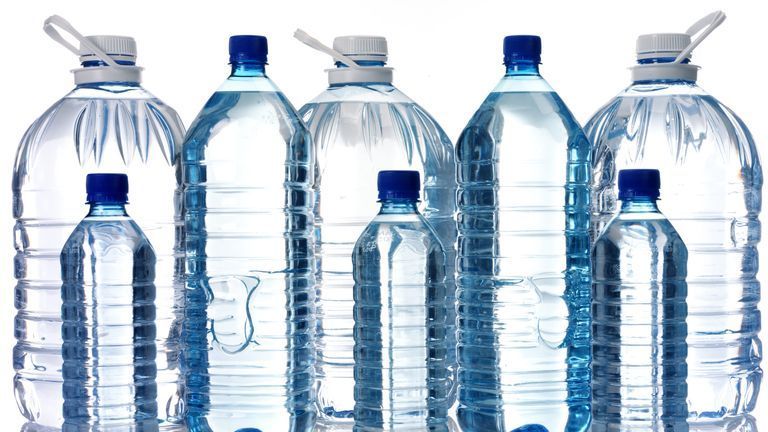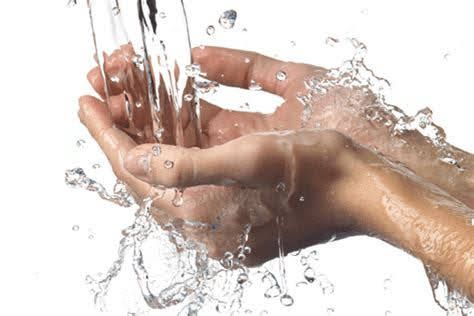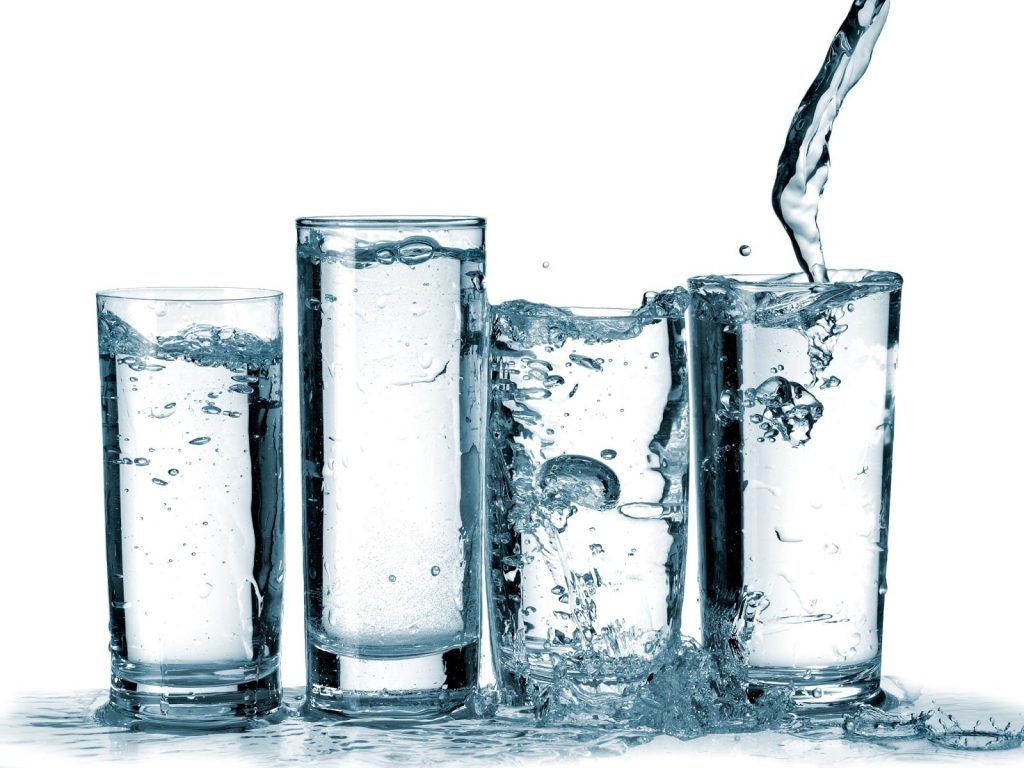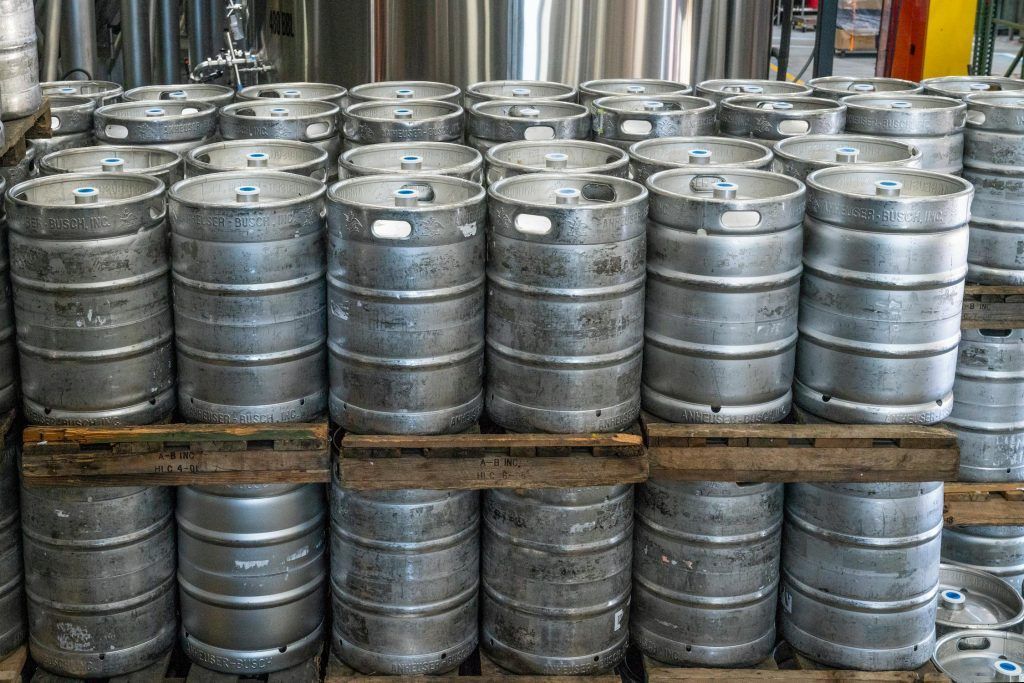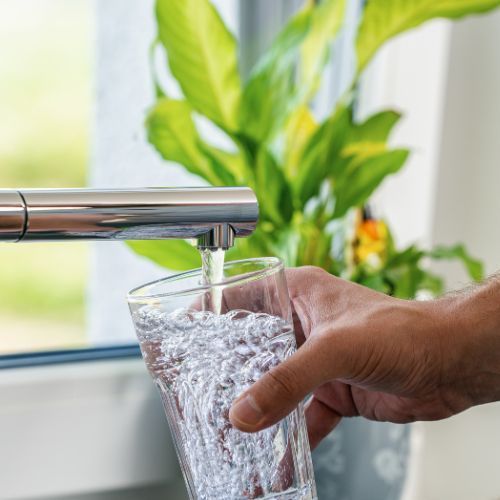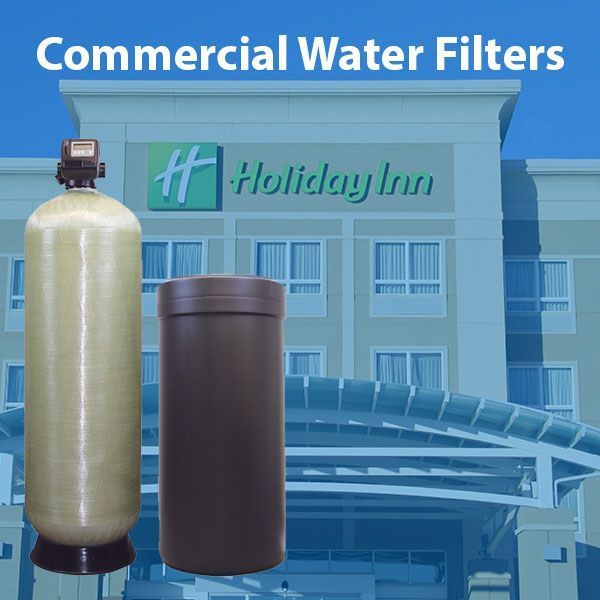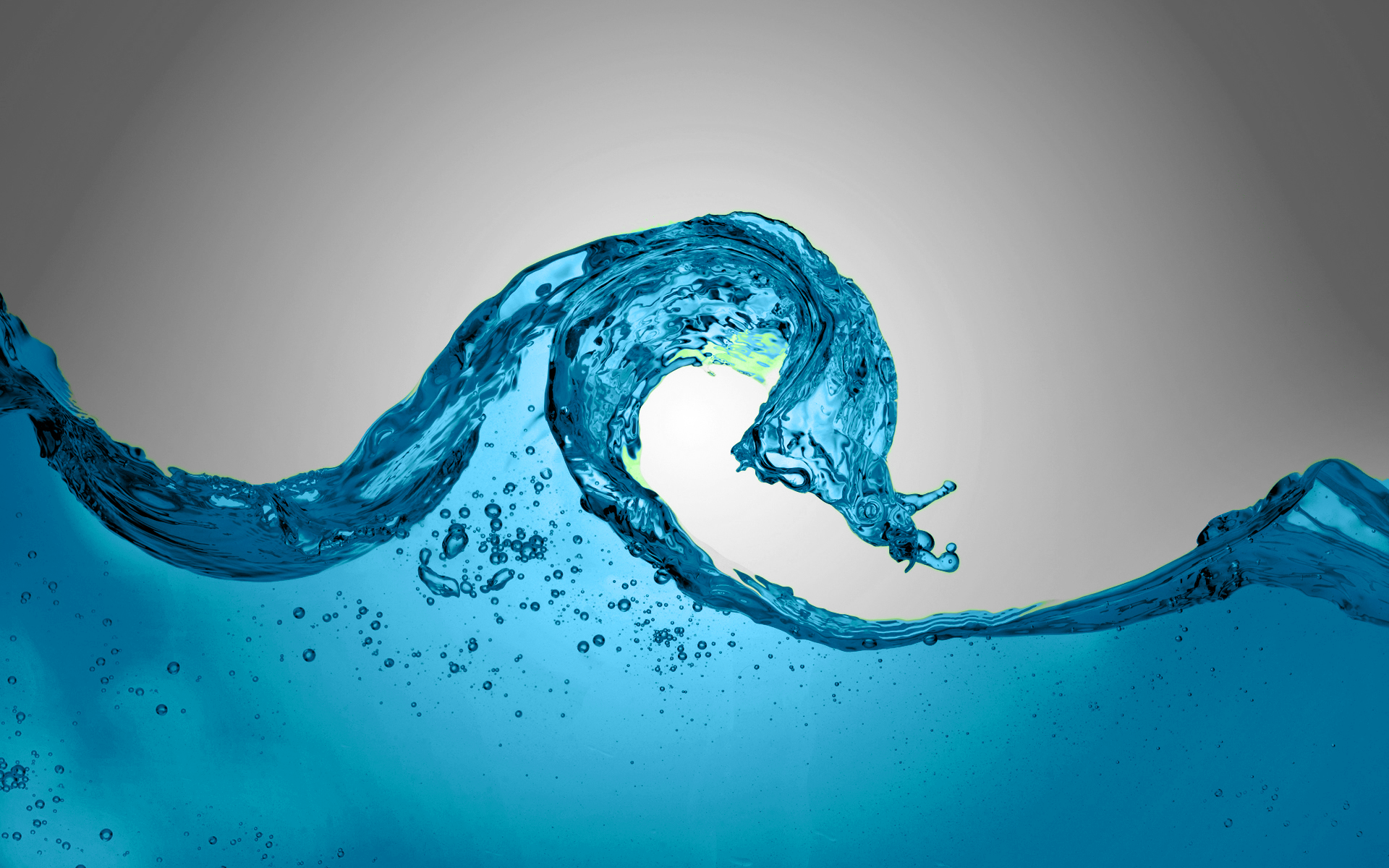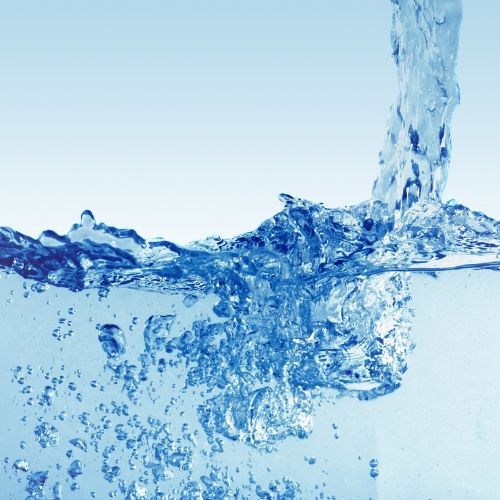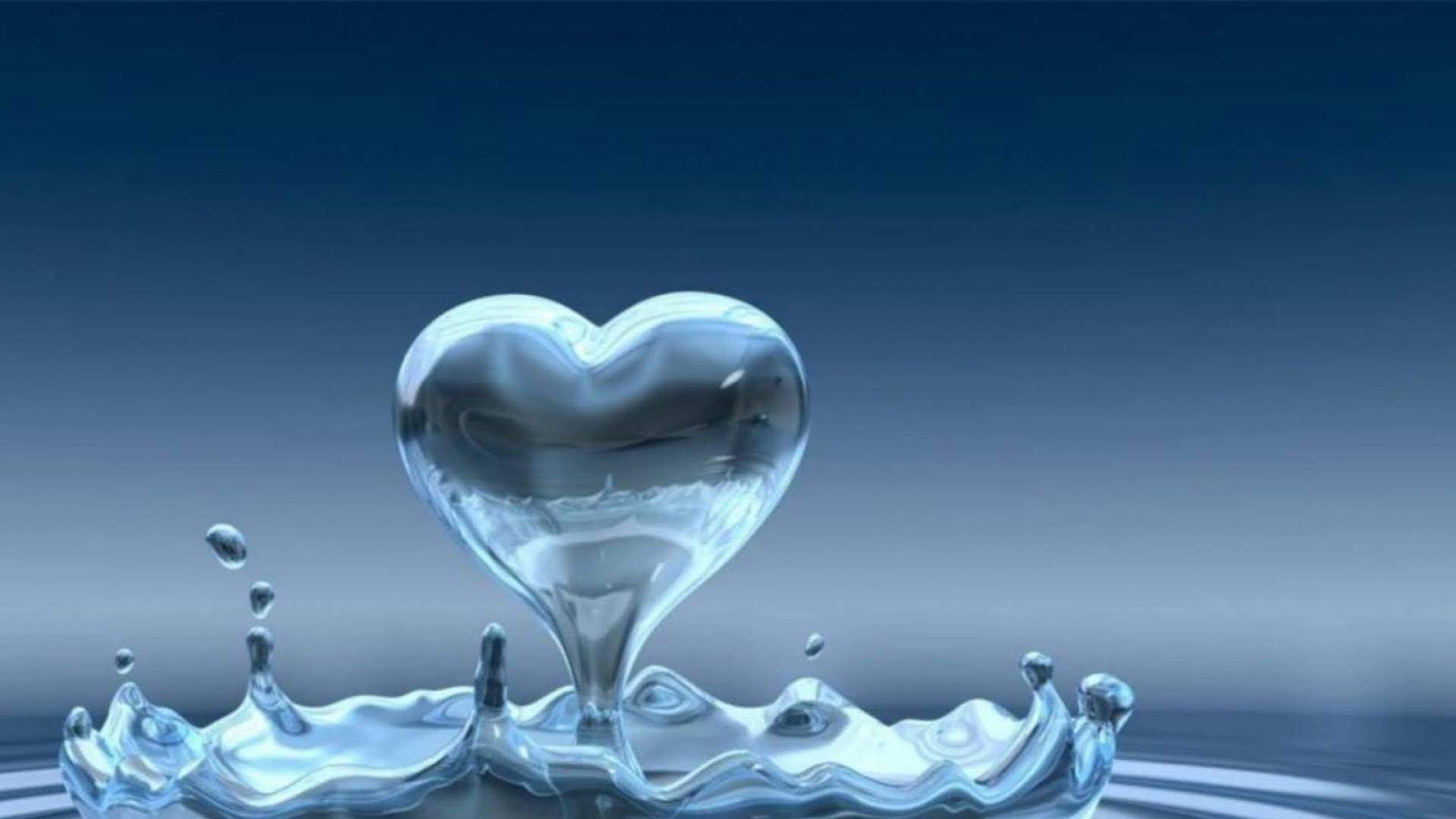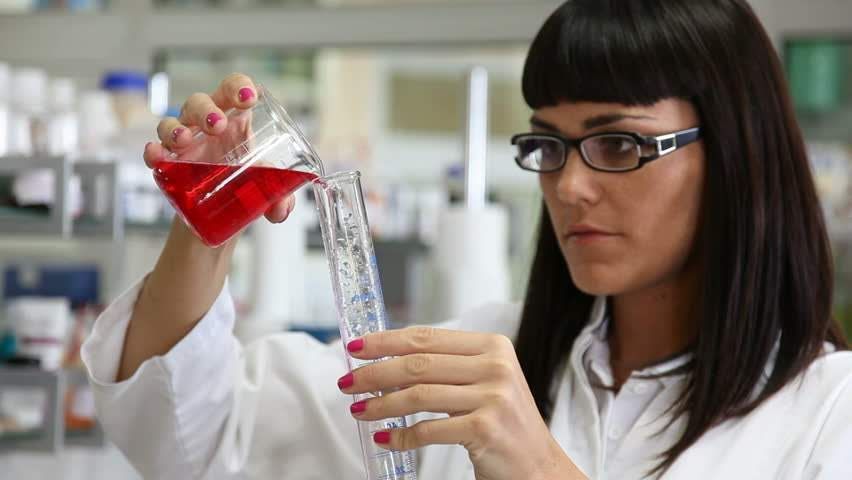Know your h2o
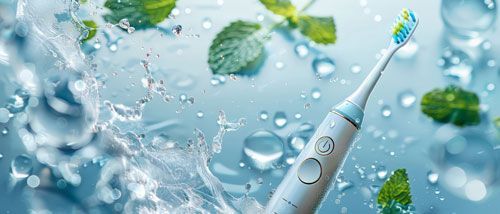
Fluoride. It's one of the most debated minerals in water treatmen t. For decades, it’s been added to tap water across the U.S. to prevent tooth decay. But in recent years, many homeowners are asking a different question: Is it still safe? Or is it time to remove fluoride? At Fix Any Water, we believe everyone deserves the full story. So let’s break it down — the good, the bad, and the ugly of fluoride in water. ✅ The Good: Fluoride Fights Cavities Fluoride is a natural mineral. It’s found in rocks, soil, water, and even some foods. In the 1940s, researchers noticed something. People who drank water with natural fluoride had fewer cavities. Cities began adding it to their water supply. Fluoride helps by: Strengthening tooth enamel Reversing early signs of decay Reducing dental costs, especially for kids The CDC even calls water fluoridation one of the greatest public health achievements of the 20th century. In short? Fluoride works. ⚠️ The Bad: Too Much Fluoride = Too Much Risk Fluoride isn’t all good news. While a small amount is helpful, too much can harm the body. Here's how: 1. Dental Fluorosis When children consume too much fluoride before their adult teeth form, it can leave white spots, stains, or even pitting on their teeth. It’s not dangerous, but it's ugly and permanent. 2. Bone Issues High levels of fluoride over many years can cause skeletal fluorosis. This condition makes bones stiff and joints painful. It’s rare in the U.S. but happens in countries with high natural fluoride levels. 3. Fluoride Is Everywhere We don’t just get fluoride from water. It’s in toothpaste, mouthwash, black tea, canned fish, and even processed foods. All these sources add up. Some people may be getting more than they think. 🧬 The Ugly: Fluoride’s Past as a Thyroid Drug Here’s something few people know: Fluoride was once used to treat thyroid disease. In the 1930s and 1940s, doctors in Europe prescribed fluoride to slow down overactive thyroids (called hyperthyroidism). Why? Because fluoride reduces iodine absorption, which is essential for healthy thyroid function. Patients were given 2 to 5 mg per day. That’s similar to what many Americans now get from: Tap water Fluoridated toothpaste Daily diet If you already have low thyroid function (Hashimoto's or hypothyroidism), this might matter. Research is still ongoing, but the historical use of fluoride for thyroid suppression is real, and rarely discussed. ❓More Concerns Being Studied Over the past decade, scientists have raised new questions about fluoride. Some studies suggest potential links to: Lower IQ in children Higher risk of ADHD Thyroid disruption Kidney strain Early puberty or reproductive issues Not all of these claims are proven. But they’re enough to warrant more research, especially for pregnant women, children, and those with chronic health conditions. 🌍 What Other Countries Are Doing Fluoride isn’t treated the same everywhere. United States: Over 70% of public water systems still add fluoride. Canada: Many cities are removing fluoride from their water. Most of Europe: Does not fluoridate. They rely on toothpaste and dental care instead. India and China: Fight to remove natural fluoride from water due to high levels. There’s no global agreement. That says a lot. 🧪 Should You Be Worried? You don’t need to panic. But you should be informed. Start by checking your local water report . If you’re on city water, your provider must tell you how much fluoride is added. The U.S. recommended level is 0.7 mg/L. If you’re on well water, fluoride may occur naturally. Some wells test as high as 4 mg/L, which is above the safe limit. 💡 What Can You Do? At Fix Any Water , we help homeowners take control. Here’s how: ✅ Test Your Water We offer fluoride testing for homes with city or well water. ✅ Talk to Your Doctor or Dentist Fluoride can be helpful, especially if you’re cavity-prone. But those with thyroid issues or kidney problems may need to reduce their intake. ✅ Choose the Right Filter Not all filters remove fluoride. A simple Brita won’t do it. Look for: Reverse Osmosis Systems Activated Alumina Filters Certified fluoride-removal filters for under-sink or whole-home use We can help you pick the right one. 🧼 Our Take at Fix Any Water We’re not anti-fluoride. We’re pro-choice. You should have access to fluoride facts. And you should be able to decide whether you want it in your water or not. Our goal is to make that choice easy, affordable, and backed by clean science. Whether you want fluoride out or just want to understand your risk, we’ve got your back. 📞 Need Help? Fix Any Water is here for you. We serve Florida homes and businesses with: Water testing Fluoride removal Whole-home filtration Friendly service you can trust 👉 Call us today or visit www.FixAnyWater.com 💧 Clean Water Starts Here. #FixAnyWater | #FluorideFacts | #WaterYouCanTrust | #SafeWaterStartsHere
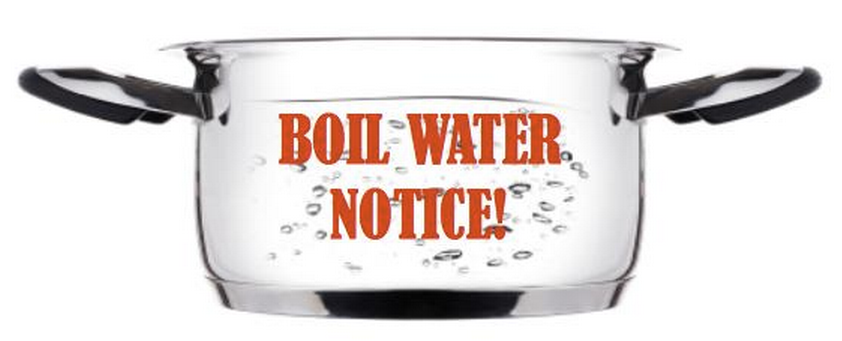
Boil water notices are more common than you might think. They affect thousands of homes and businesses every year. If you've ever received one, you know it can cause panic and confusion. But there’s no need to worry. With the right knowledge and tools, you can stay safe and maintain clean water. Actually, What Is a Boil Water Notice? A boil water notice is a public health warning. It tells people that the local water supply may be unsafe to drink. The notice is usually issued by a city or county when: A water main breaks A natural disaster damages the system A routine water test finds contamination Pressure drops in the pipes Repairs or upgrades are being done In most cases, officials are worried about harmful bacteria like E. coli or other microbes getting into the system. When the pressure drops or equipment fails, dirty water can flow backward into clean lines. Why Are Boil Water Notices Important? Drinking unsafe water can make you sick. It can lead to stomach pain, nausea, vomiting, and diarrhea. In serious cases, it can cause infections, especially for people with weak immune systems. That’s why boil water notices exist—to protect your health. They’re not just a suggestion. They are a legal advisory, and you must follow them until they are officially lifted. What to Do When You Get a Boil Water Notice Don’t wait. Act fast to protect your household or business. Here are simple steps you should take: 1. Boil All Tap Water Before Use Bring water to a full rolling boil for at least one minute. Let it cool before using. This kills bacteria, viruses, and parasites. 2. Use Bottled Water If You Can Bottled water is the safest option for drinking, brushing teeth, making ice, washing fruits and vegetables, or mixing baby formula. 3. Don’t Use Ice from Your Icemaker Throw out any ice made during the notice. Turn off your icemaker to prevent it from pulling in contaminated water. 4. Avoid Tap Water for Cooking Boil water first or use bottled water to boil pasta, rice, or other foods. 5. Sanitize Dishes Properly Use hot, soapy water, and add one teaspoon of unscented bleach per gallon for a final rinse. If you have a dishwasher with a “sanitize” cycle, it’s safe to use. 6. Don’t Brush Your Teeth with Tap Water Even if you don’t swallow, germs can still enter your body. Use boiled or bottled water instead. 7. Give Pets Safe Water Too Animals can get sick just like humans. Boil their water or use bottled water during a notice. When the Notice Is Lifted Once your local authority says the water is safe again, it’s still important to clean your home systems: Flush all taps by letting them run for several minutes Empty and clean ice makers and water coolers Change refrigerator filters and under-sink filters Sanitize your softener or treatment systems If you have a private well, get it tested Boil Water Notices and Businesses Restaurants, hotels, clinics, and other businesses must take extra steps. Health inspectors often require these businesses to shut down temporarily or follow strict protocols. That may include: Using only bottled or boiled water Closing ice machines and soda fountains Disabling drink dispensers connected to tap water Displaying signs in bathrooms and sinks This can cost businesses time and money. Having a water filtration system in place can help prevent downtime. How a Water Filtration System Helps A properly designed home or commercial water filtration system can offer protection during boil water notices. While no single system is perfect for every situation, the right combination can greatly reduce risks. 1. Ultraviolet (UV) Systems These systems kill bacteria and viruses using light. If the water is clear and pre-filtered, UV is highly effective. 2. Reverse Osmosis (RO) Systems RO systems force water through a membrane, filtering out bacteria, viruses, and many harmful chemicals. They’re great for drinking water. 3. Whole Home Filtration This protects every faucet in your home. It filters water before it enters your plumbing, offering peace of mind. 4. Emergency Backup Filtration Some systems have a manual pump or gravity filter that works even during power outages. These are great for natural disasters and boil water emergencies. We Can Help At Fix Any Water / Safeway Water Technologies , we specialize in helping homeowners and businesses prepare for boil water notices. We install, service, and maintain systems that work when the city water fails . Our team offers: Whole-home water filtration Reverse osmosis drinking systems UV disinfection units Emergency filtration options Ongoing service and testing We’ll help you find the right solution for your family or business. Don’t Wait for the Next Notice Boil water notices can happen without warning. Don’t wait until you're stuck boiling pots of water on the stove. Protect your water now. Whether you're a homeowner who wants clean water at every tap or a business that needs to stay open during water emergencies, we have a solution for you. Key Takeaways Boil water notices mean your tap water may be unsafe Always boil or use bottled water during a notice Don’t forget pets, cooking, or brushing your teeth Businesses face extra challenges, but we can help Water filtration systems add protection and peace of mind

Arsenic is a toxic metal. It can be found in drinking water. It’s odorless. Tasteless. Invisible. And it can harm your baby. What Is Arsenic? Arsenic is a natural element. It’s found in soil, rock, and groundwater. In some places, it's also released by farming or factories. It can get into wells and even treated city water. Why You Should Care You can’t see arsenic in your water. You can’t smell it or taste it. But if you drink it every day, it builds up. And that’s when the problems start. Even small amounts of arsenic are dangerous. It’s linked to cancer, heart disease, and nerve damage. But for babies? The risks are even greater. Arsenic and Low Birth Weight One of the biggest risks? Low birth weight. When a pregnant woman drinks arsenic-contaminated water, It crosses the placenta. It reaches the unborn child. Studies show a clear link. Mothers exposed to arsenic are more likely to deliver smaller babies. These babies are born underweight. And they face lifelong health problems. Low birth weight is serious. It can lead to: Developmental delays Weak immune systems Breathing issues Learning disabilities Higher risk of illness It’s a danger no parent wants. Other Health Risks for Babies Low birth weight isn’t the only threat. Arsenic exposure during pregnancy can also cause: Premature birth Miscarriage Poor brain development Long-term damage to organs Even after birth, babies can be exposed. Formula mixed with tap water can contain arsenic. Bath water can be a source too. Infants absorb more water through the skin. Their bodies are smaller and more vulnerable. Arsenic in the U.S. This isn’t just a problem in other countries. Arsenic is in water all across the U.S. Private wells are the highest risk. But even some municipal systems show elevated levels. Florida, the Carolinas, New Mexico, and Arizona all have trouble spots. If you use well water, you should test it every year. But even city water isn’t guaranteed safe. How Does Arsenic Get into My Water? Arsenic enters water naturally. It seeps from rocks into groundwater. When you pump from a well, it comes with it. Sometimes, it’s from pesticides or industrial runoff. Boiling the water doesn’t help. In fact, it can make it worse. Boiling doesn’t remove arsenic—it concentrates it! What Can You Do? Test your water. That’s the first step. You can’t fix what you don’t know. If you’re pregnant or have a newborn, don’t wait. At Fix Any Water , we make testing simple. We’ll test your water fast and explain the results. If arsenic is present, we’ll recommend a system that works. Best Ways to Remove Arsenic Basic filters don’t work on arsenic. You need the right tools. Here are the top options: 1. Reverse Osmosis (RO) Removes arsenic at the molecular level Installed under the sink Great for drinking and cooking Affordable and effective 2. Whole House Arsenic Filters Treats all water in your home Protects your baby’s bath, bottles, and laundry Works for both city and well water Designed for long-term health 3. Point-of-Use Filtration Perfect for renters or small spaces Easy to maintain Targeted protection where it counts Our systems are proven, safe, and easy to use. We design each one based on your home and your water. Safe Drinking Water for Families Clean water is vital for your baby’s growth. It’s not something to guess about. Contaminants like arsenic can harm your family quietly. That’s why we’re here. We help families, schools, and even medical clinics stay safe. We understand how to treat different water sources. And we do it without harsh chemicals. We also provide regular maintenance. So your system keeps working year after year. Affordable Protection You don’t need to break the bank. Our water filtration systems are affordable. We also offer payment plans. Because clean water shouldn’t be a luxury. We believe in clean, safe water for every home. That’s why we do what we do. What About City Water? Even city water can have arsenic. The EPA allows up to 10 parts per billion. But studies show health risks at lower levels. Some systems fail to remove it all. You may still need filtration at home. Especially if you're expecting or have young children. Don’t assume city water is fully safe. Get it tested. Know for sure. Why Us? We Are: Local experts Honest recommendations Tested, proven solutions Family-focused service Arsenic removal that works We’re not a big-box store. We’re your neighbor. And we care about your family’s health. Our systems are built to last. Our service is fast and friendly. And our mission is simple: Protect families from unsafe water. Take Action Today If you’re pregnant or have children, act now. Test your water. Install a filter if needed. And give your baby the best start in life. Low birth weight is preventable. So are many other health risks. Don’t wait for symptoms. Arsenic won’t warn you—it just harms. Let us help you stay safe. Fix Any Water is your partner in clean water. We make it easy, affordable, and worry-free. Call Today 866-928-3795
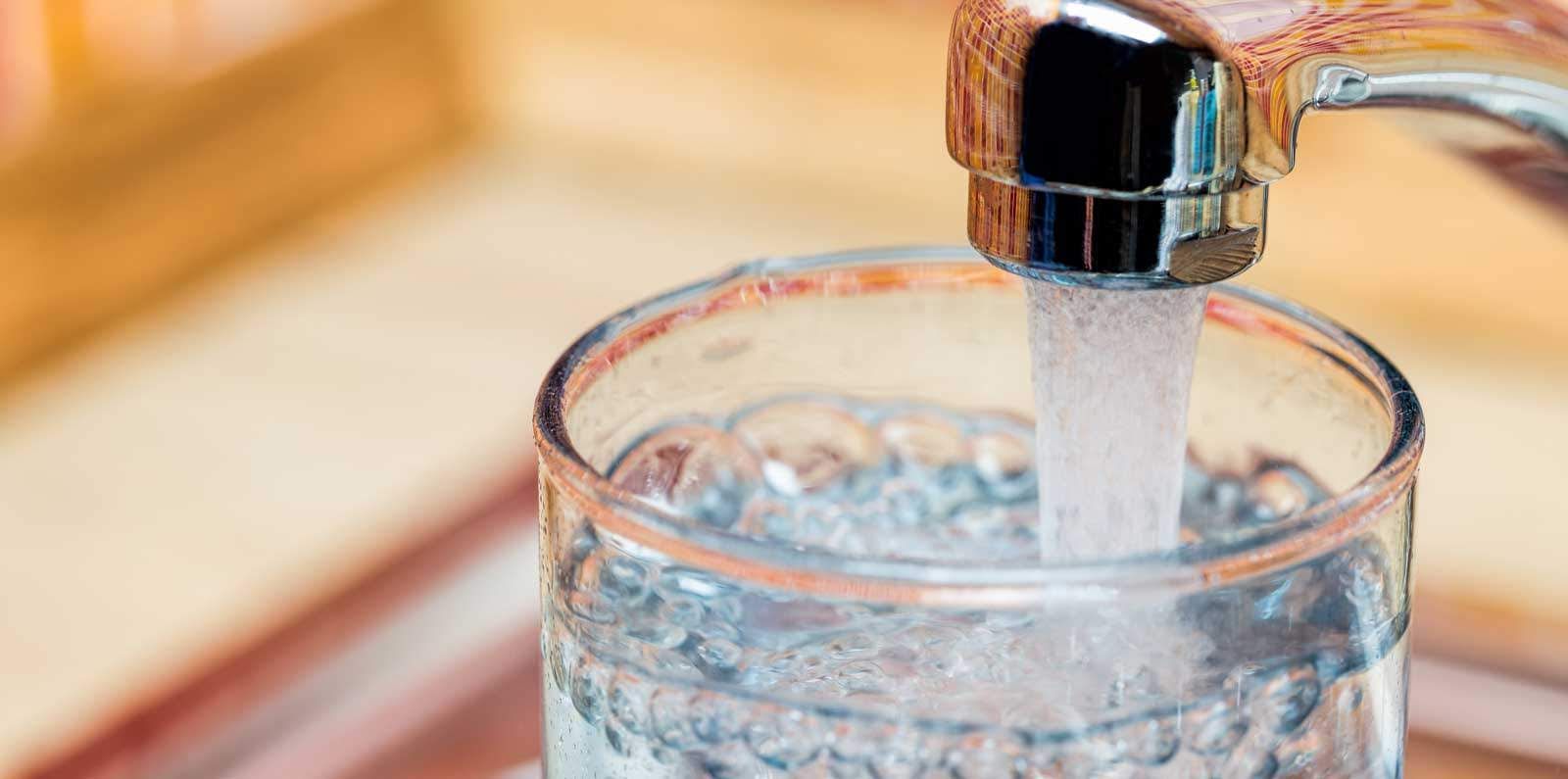
Clean water is essential. But not all water is safe to drink. Unfiltered water can carry hidden risks. These dangers often go unnoticed. But over time, they can lead to serious health problems. Unfiltered water may look clean. But it can still contain harmful substances. These include: Chlorine Lead PFAS (forever chemicals) Pesticides Bacteria Viruses Heavy metals Pharmaceutical residue These contaminants can come from pipes, runoff, or outdated infrastructure. Even city water is not always safe. A home filtration system can help. But without one, your family is at risk. You can check what in your municipal water here: https://www.ewg.org/tapwater/ Drinking unfiltered water daily can be dangerous. Let’s look at the long-term effects. 1. Cancer Risk Increases Many water contaminants are carcinogens. PFAS and chlorine byproducts are a serious concern. Over time, these can damage DNA. That leads to higher cancer risks, especially for: Bladder cancer Kidney cancer Liver cancer Even low exposure adds up. Filtering your water can lower this risk. 2. Heavy Metal Poisoning Lead and arsenic are common in old pipes and groundwater. These metals accumulate in the body. Long-term exposure affects: Brain function Kidney health Heart performance Children are especially at risk. Their brains are still developing. Lead in drinking water can cause learning issues and behavioral problems. A filtration system removes these threats. 3. Hormone Disruption Many chemicals in tap water act as endocrine disruptors. That means they interfere with hormones. PFAS and pesticides are major culprits. They can cause: Thyroid issues Weight gain Infertility Early puberty in kids Removing these contaminants with a home water filtration system is crucial, especially for pregnant women and young children. 4. Immune System Damage Unfiltered water can carry viruses and bacteria. These may not make you sick right away. But over time, they strain the immune system. Chronic exposure can cause: Frequent illness Digestive problems Autoimmune flare-ups Those with weak immune systems suffer most. Seniors and young children are especially vulnerable. 5. Gut Health Declines Chlorine is added to kill germs. But it also kills good bacteria in your gut. Long-term exposure can lead to: Bloating Food sensitivities Weakened immunity Filtered water protects your gut. A healthy gut boosts overall well-being. 6. Skin and Hair Issues Many contaminants affect the skin. Chlorine dries it out. Metals can cause rashes or breakouts. PFAS have been linked to acne and eczema. Long-term exposure may lead to: Premature aging Dry, brittle hair Skin inflammation Filtering your water helps from the inside out. It also improves your bathing water. 7. Kidney and Liver Stress These organs filter toxins. If your water is dirty, they work harder. Over time, this leads to: Fatigue Liver damage Kidney disease Clean water means less stress on vital organs. Filtration systems remove harmful toxins before they reach your body. 8. Reproductive Issues Heavy metals and PFAS affect fertility. They can harm reproductive organs and hormones. Women may have irregular cycles. Men may see lower sperm counts. Filtered water supports reproductive health. Water Filtration: A Smart Solution A home water filtration system removes most of these risks. It gives peace of mind. Clean water improves long-term health. It protects your family and your future. Our systems filter: Lead Chlorine PFAS Bacteria Pesticides Hard water minerals We customize every setup. Whether you’re on city water or a private well, we have solutions. Our filters improve both taste and safety. Why Filtered Water Matters Unfiltered water harms more than just your health. It damages appliances and plumbing. Hard water causes buildup. That reduces the life of: Water heaters Dishwashers Coffee machines Washing machines Filtering water saves money in the long run. It also helps the environment. You’ll use fewer plastic water bottles. Who Needs Water Filtration? Everyone. But especially: Families with children Expecting mothers Seniors People with health conditions Homes with old plumbing Residents near agriculture or industry Even if your water “passes” testing, it may not be safe. Legal limits do not always mean healthy. Long-Term Benefits of Clean Water Investing in a water filtration system offers: Better health Fewer doctor visits Safer cooking and drinking Clearer skin and stronger hair Peace of mind Our clients say they can taste the difference. They feel better too. Common Myths “My water looks fine.” Looks can be deceiving. Many toxins are invisible and tasteless. “Bottled water is safer.” Bottled water is not always filtered. And the plastic leaches chemicals. “It’s too expensive.” Filtration systems are affordable. Especially when you compare them to medical bills or replacing damaged appliances. Protect What Matters Don’t take risks with your water. Small steps today prevent major problems tomorrow. A quality home water filtration system can make all the difference. Ready to Take Action? We can help. Whether you need whole-home filtration, a reverse osmosis system, or a solution for PFAS removal, we have you covered. Our experts test your water and install the right system for your needs. Clean water is not a luxury. It’s a necessity. Let us help you make it a reality Contact us today to schedule your water test. Protect your health. Protect your family. Fix Any Water. Filter Every Drop.
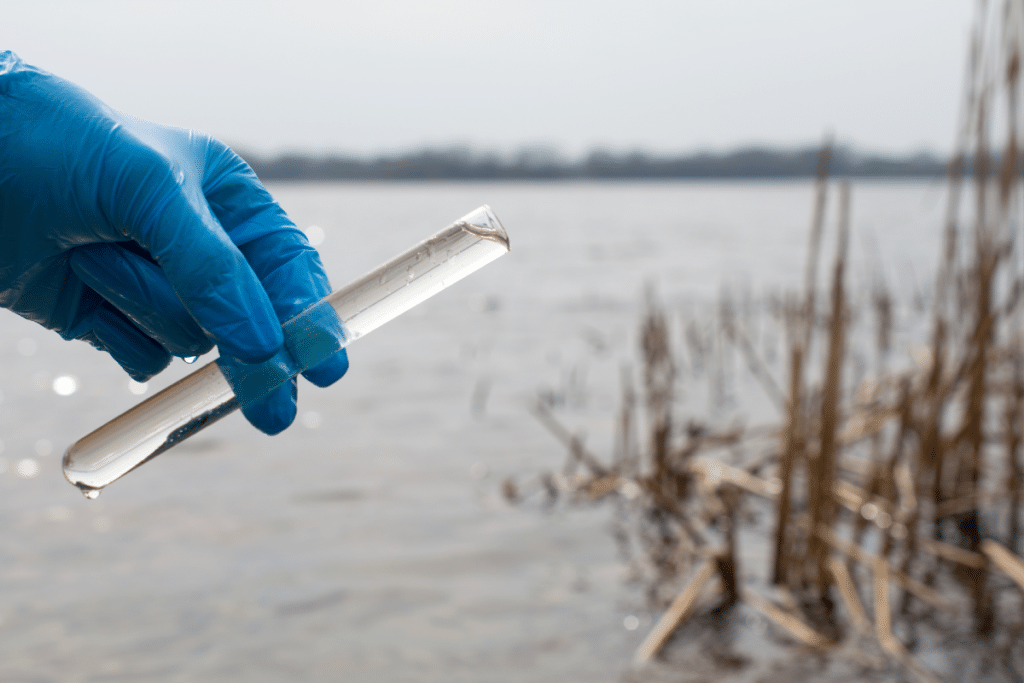
Clean water matters. The U.S. Environmental Protection Agency (EPA) just made that more clear than ever. In April 2024, the EPA finalized strict new limits on PFAS in drinking water. These rules are the first of their kind. They are long overdue. And they affect everyone — homes, businesses, and entire cities. But here's the catch: Municipal systems may take years to catch up. That’s where we come in. What Are PFAS? PFAS stands for Per- and Polyfluoroalkyl Substances. These are man-made chemicals. You’ll find them in everything from non-stick pans to waterproof gear. They’re also known as “forever chemicals.” Why? Because they don’t break down easily. They stay in water. They stay in your body. They’ve been linked to: Cancer Liver damage Thyroid problems Low birth weights Immune system issues And more What Did the EPA Just Do? The EPA set national legal limits on six PFAS chemicals. Two of them — PFOA and PFOS — must be non-detectable in public water systems. The rest — GenX, PFNA, PFHxS, and PFBS — now have strict thresholds. Water utilities now have to: Test for PFAS Notify the public Fix the problem This all sounds great. But there’s just one problem. Cities Can’t Fix This Overnight. Upgrading a city water system is expensive. It also takes time. Some communities might not be able to comply for years. In the meantime, families and businesses are still drinking PFAS-contaminated water . It’s not the utility’s fault. But it’s still your problem. So What Can You Do? You can take control of your water. Right now. Targeted filtration is the smart choice. It’s faster. It’s cheaper. And it actually works. We install advanced systems that remove PFAS at the point of entry (POE) or point of use (POU). That means: Whole-home solutions Under-sink systems Commercial-grade filtration for restaurants, hotels, and clinics We don’t wait for the government. We solve the problem at the source — your tap. What Filters Remove PFAS? Not all filters are created equal. A simple pitcher won’t cut it. To remove PFAS, you need one of the following: Activated carbon (GAC) systems Reverse osmosis (RO) Ion exchange systems Our team will recommend the right fit for your water and your budget. We test. We install. We service it. You get peace of mind. Is It Affordable? Yes. In fact, it’s way more affordable than people think. Whole-home PFAS filtration starts at just a few dollars per day. For businesses, we build custom systems that scale with your needs. We also offer: Low monthly payments Service plans Emergency installation options Lab testing for before-and-after results No guesswork. Just clean water. What About Businesses? PFAS doesn’t just hurt homes. It’s also bad for your bottom line. Restaurants, breweries, medical offices, and hotels all depend on clean water. PFAS in your water can: Hurt your reputation Trigger failed inspections Damage equipment Lose your customers Why Choose Us? We’ve been fixing water for years. And we don’t rely on cookie-cutter solutions. We help you stay compliant, safe, and profitable. We’re local. We’re licensed. And we care. We’ve already helped families, medical facilities, and businesses protect themselves from PFAS. And we stay ahead of EPA guidelines, so you don’t fall behind. The Bottom Line is that PFAS are real. The risks are real. And now, so are the federal rules. You can wait for your city to upgrade. Or you can protect your home or business today. We make it easy. We make it affordable. We make your water safe. Ready to Take Action? Call us to schedule your free water assessment . We’ll test your water. Show you the options. And help you choose the best plan for your needs. Your clean water is waiting. Safeway Water Technologies ~ Fix Any Water Safe. Smart. Filtered.
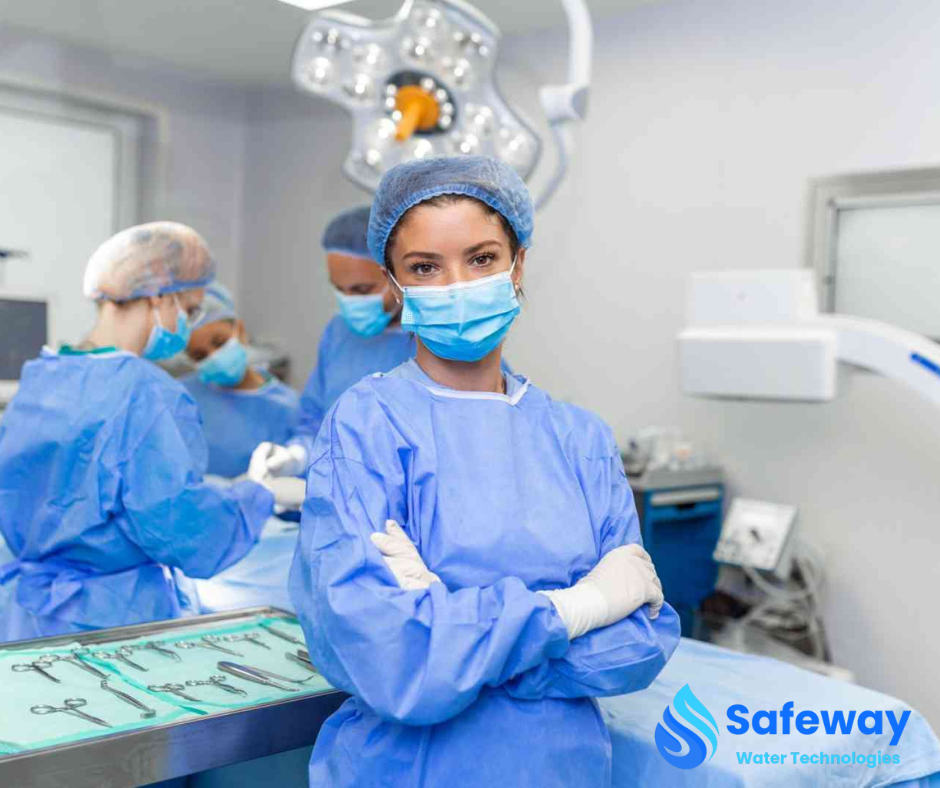
Water quality matters more than ever, especially in surgery centers. The AAMI ST108 standard is changing how facilities handle water. It sets the bar for what water used in sterile processing should look like. While it's not mandatory yet, it is being adopted fast. To stay ahead, surgery centers need to take action, and water filtration is the key. And we’re here to help you meet the ST108 standard — now and for the future. Exactly What Is the AAMI ST108 Protocol? ST108 is a guideline from AAMI . It defines the water quality required in surgery centers and hospitals. It focuses on the water used for cleaning, disinfection, and sterilization of surgical tools. ST108 includes strict limits. These cover things like: Conductivity Total Organic Carbon (TOC) Microorganisms Endotoxins Hardness and chlorine If your water doesn’t meet these standards, your instruments may not be clean. Worse, your patients may be at risk. Why Does ST108 Matter Now? Many inspectors are already using ST108 as a benchmark. So are accreditation agencies. They want to see that your water system is ready. Centers that fail water quality tests face shutdowns or citations. Even if ST108 isn’t enforced yet, non-compliance is still a red flag. ST108 helps prevent: Biofilm buildup in autoclaves Corrosion of surgical tools Cross-contamination Infections from improperly cleaned instruments That’s why forward-thinking surgery centers are upgrading now. They know clean water protects patients, staff, and their license. The Role of Water Filtration . To meet the AAMI ST108 protocol, filtration is essential. A basic carbon filter isn’t enough. You need a medical-grade system. That means: Reverse osmosis (RO) Deionization (DI) Carbon backwash Pre-treatment for scale and hardness Final polishing filters Each stage plays a role. The RO and DI remove minerals, metals, and organics. Carbon protects your membranes. Polishing filters remove endotoxins and microbes. We design water filtration systems that meet and exceed ST108. Whether you're building new or upgrading, we tailor it to your space and your workflow. Monitoring Is Just as Important Filtration isn't enough without monitoring. ST108 calls for routine testing and logging. You must check for: Resistivity or conductivity TOC (Total Organic Carbon) Endotoxins Microbial growth Our systems include easy-to-read gauges and digital meters. You get real-time updates. We also provide monthly testing with verified results. If something goes wrong, we know before it becomes a problem. That’s peace of mind. Routine Service for ST108 Compliance We don’t just install systems. We stay with you every step. With our monthly service agreement: We inspect all filtration equipment. We change filters and RO membranes. We refill salt and sanitize tanks. We test water quality and keep records. We offer emergency service when needed. Our ST108 service plan means you don’t have to worry. We handle the water. You focus on your patients. You get full documentation, ready for any inspection. How We Help Protect Your Investment Water treatment isn’t a one-time fix. Systems need care to stay within ST108 standards. We help you protect your investment with: Routine visits No hidden costs Warranty coverage Quick turnaround for service Dedicated support from trained techs And there’s no contract. Just a simple agreement. Cancel with 30 days’ notice if needed. We believe in earning your trust, month after month. What Happens If You Don’t Meet ST108? Ignoring ST108 can lead to serious problems. Even if it's not yet mandatory, here’s what could happen: A failed inspection or audit Equipment damage from poor water Higher maintenance costs Lost revenue during shutdowns Patient safety risks Legal or liability issues It costs more to fix water problems after the fact. Staying ahead is the smart move. Future-Proof Your Surgery Center Today ST108 is the future. It’s already here for many centers. If your facility doesn’t meet the standard, it’s time to act. We offer: Free water testing Custom system design Fast installation Expert support Compliance documentation Whether you’re upgrading or starting fresh, we’ve got you covered. We work with you, your biomedical team, and your inspectors to ensure everything runs smoothly. Why Choose Safeway Water Technologies ? We specialize in water treatment for surgery centers. We understand the challenges of sterile processing. Our ST108 compliance packages are: Efficient Affordable Tailored to your facility Backed by lab-tested performance We already help facilities meet the ST108 standard — and stay there. Let us do the same for you. Don’t wait for an inspection to find out your water system isn’t ready. Call us today for a free assessment. We’ll test your water, review your setup, and build a plan that fits your budget and exceeds AAMI ST108. Let’s protect your tools, your patients, and your reputation — with water that meets the highest standard.
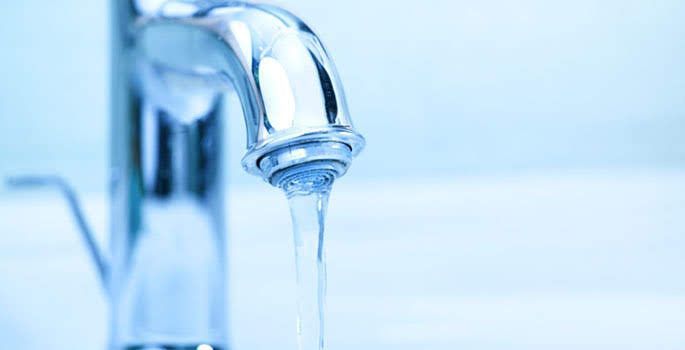
If you’re dealing with hard water, you’ve likely heard about salt-free water systems. These systems are often marketed as a healthier, low-maintenance alternative to traditional water softeners. But do they actually work? Let’s break it down and look at what salt-free systems do—and don’t do. A salt-free system is often called a water conditioner, not a softener. Traditional water softeners remove hardness minerals like calcium and magnesium. They use ion exchange and salt to do this. A salt-free water conditioner, however, doesn’t remove those minerals. Instead, it alters them. The goal is to prevent these minerals from sticking to pipes and appliances. This is done through a process called Template Assisted Crystallization (TAC) or similar technologies. This is why these systems are sometimes called “descalers.” But do Salt-Free Water Systems Soften Water? No. Technically, they do not soften water. Salt-free water systems do not remove hardness minerals. Water is still hard, according to testing. What they do is reduce scaling—the buildup of minerals on surfaces. This can help protect pipes, fixtures, and water heaters. But it won’t give you the silky feeling of softened water. What Are the Benefits? Salt-free systems offer several advantages: No salt bags. Great for those on low-sodium diets. No wastewater. Traditional systems flush salty water; salt-free systems don’t. Low maintenance. Some need cartridge changes only once a year. Environmentally friendly. No salt or brine to pollute groundwater. These are big wins for people who care about the planet and want simple solutions. What Are the Drawbacks? There are trade-offs. Salt-free systems don’t remove minerals. So, you may still see spots on dishes or buildup on glass. Laundry won’t feel as soft. Soap won’t lather the same. Your shower experience won’t change much. Also, if your water is very hard (over 10 grains per gallon), a salt-free system may not keep up. Do They Help Appliances? Yes, they can. Even though the minerals are still in the water, TAC and similar processes change their structure. This helps keep them from sticking to heating elements or plumbing. That means fewer breakdowns. It also means better performance from: Water heaters Coffee makers Dishwashers Washing machines So if you're trying to protect appliances from hard water, these systems help. Are Salt-Free Systems Good for the Whole House? Yes, if your main concern is scaling. Salt-free systems work well in homes with moderate hardness levels. They are often paired with carbon filters to improve taste and remove chlorine or odors. They are also great in areas where traditional softeners are banned, like parts of California and Arizona. Will I Notice a Difference? Yes, but not in every way. Your skin won’t feel softer. Your hair might not rinse any better. The water will still test hard. But your water heater may last longer. Your showerhead may not clog. You may not need to scrub your sink as often. If your main concern is appliance damage, then yes, salt-free systems help. Salt-Free Water Systems vs. Water Softeners Let’s compare: Feature Salt-Free System Salt-Based Softener Removes hardness ❌ No ✅ Yes Uses salt ❌ No ✅ Yes Reduces scale ✅ Yes ✅ Yes Maintenance Low Moderate Water feels soft ❌ No ✅ Yes Produces wastewater ❌ No ✅ Yes Sodium added to water ❌ No ✅ Yes Better for appliances ✅ Yes ✅ Yes Salt-free systems are best for scaling issues, not comfort or taste. Common Questions Q: Is a salt-free system good for drinking water? A: Yes. Since no salt is added, it’s safe and pleasant to drink. But you may still want a reverse osmosis system to remove other impurities. Q: Do I still need a filter? A: Yes. Salt-free systems don’t remove chlorine, sediment, or chemicals. We often recommend pairing with a carbon filter or whole-home filtration system. Q: Can I use one with well water? A: Maybe. It depends on your well water. If you have iron, sulfur, or bacteria, you’ll need pre-treatment. We can help test your water and make a plan. So, Do Salt-Free Systems Really Work? The answer is: They work, but not the way you might think. They don’t remove hardness. They don’t soften the water. But they do prevent scale. They do reduce maintenance on appliances. And they do save water and salt. If you want less buildup without the hassle of salt, a salt-free system may be right for you. What We Recommend At Safeway Water Technologies/Fix Any Water, we offer both salt-free and salt-based systems. We help homeowners and businesses choose the right fit. If your main goal is to: Stop scale Reduce maintenance Stay low-sodium Help the environment ...a salt-free water conditioner may be perfect. If your goal is: Softer skin and hair Spot-free dishes Luxurious water Full hard water removal ...then a traditional softener is better. In many cases, the best setup is a hybrid system. We custom-design water treatment for your exact needs. Final Thoughts Salt-free water systems do work—but not as softeners. They are water conditioners, great for scale prevention and appliance longevity. They’re not for everyone. But in the right home, they shine. Want to know if one will work for you? We offer free in-home water testing and consultation . No pressure, just answers.
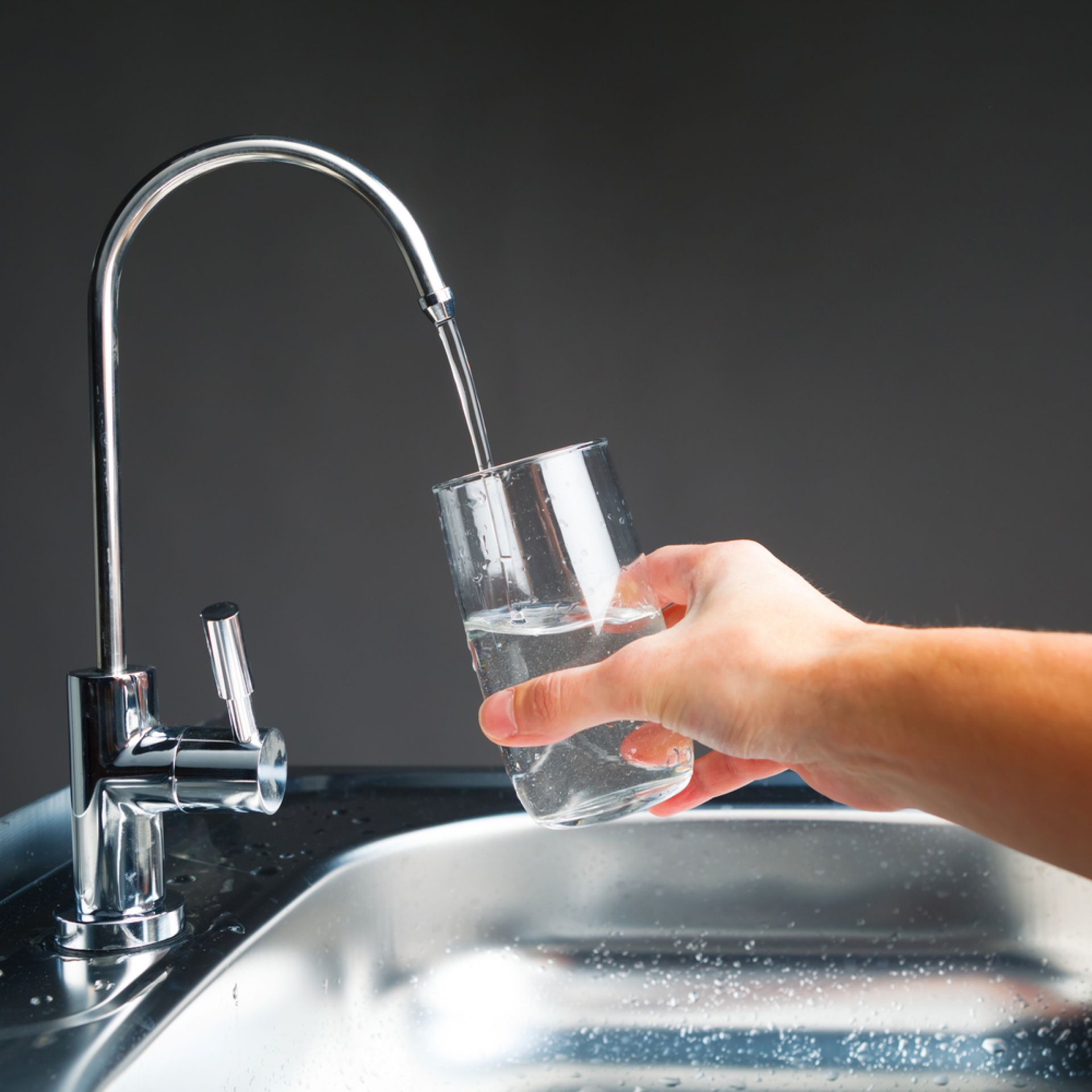
Is your water softener acting up? Does your water feel different lately? You're not alone. Many people ask us, “What’s wrong with my water softener?” Let’s walk through the most common signs and fixes. We’ll keep it simple and to the point. 1. Hard Water is Back: The #1 sign of trouble? Your water is hard again. You may notice: Soap doesn’t lather. Water spots on dishes. Clothes feel rough. Hair feels dry. White buildup on faucets. If your softener isn’t softening, something’s off. It could be low salt, a clogged resin bed, or a broken valve. 2. Salt Level is Too Low Check your salt tank. Is the salt below the halfway mark? If yes, refill it. No salt = no soft water. Water softeners need salt to work. It's what helps remove hardness minerals. If you see a crust or mushy mess inside the tank, that’s called a salt bridge or salt mush. Break it up with a broom handle. Flush the tank if needed. 3. Your Water Tastes Strange Soft water should taste clean. If your water tastes salty, metallic, or odd, the softener may be the cause. This could mean: The system is stuck in regen mode. The resin is exhausted. There’s too much salt in the tank. Flush the unit and call a technician if the taste doesn’t improve. 4. Low Water Pressure Water softeners can clog. That slows everything down. If you’ve noticed weaker flow at your sinks or showers, check the system. A clogged resin bed or filter could be to blame. Iron buildup can also restrict flow. Have your unit cleaned and the resin checked. Sometimes, a resin replacement is needed. 5. It's Stuck in Regeneration Water softeners have a regeneration cycle. This usually happens at night. It cleans the system and flushes out minerals. If the unit keeps cycling or gets stuck, something’s wrong. Common causes: A faulty timer. Broken valve motor. Stuck piston or seals. Your softener may be wasting water and salt. Or it might not be cleaning itself at all. 6. You Hear Strange Noises Clicking. Whirring. Gurgling. These are not normal sounds. A water softener should be quiet. Noises could mean: The motor is struggling. A valve is jammed. There’s air in the lines. Turn off the unit and inspect it. Call a technician if the noises persist. 7. Leaks Around the Softener Leaks are a red flag. Water pooling near your softener is never good. Check for: Cracked bypass valve. Loose fittings. Leaky brine tank. A small drip can become a big problem. Address leaks quickly to prevent water damage. 8. Softener Uses Too Much Salt Filling the salt tank more than once a month? That’s not normal. It could mean: The system is regenerating too often. The settings are off. The control valve is broken. Check the regeneration frequency. Most homes only need a regen every 5–7 days. Excess salt use = wasted money. 9. Resin Bed is Worn Out The resin bed does the heavy lifting. It grabs the hard minerals from your water. Over time, resin beads break down. Especially if there’s chlorine or iron in the water. Signs of bad resin: The softener doesn’t work, even with salt. Water feels gritty. Rusty stains appear. Most resin lasts 10–15 years. If yours is older, a replacement may be needed. 10. Your Softener is Old Like any appliance, softeners age. If yours is 10+ years old, it might be time for a new one. Older models: Use more salt and water. Are less efficient. Can break down more often. New models save money and are easier to manage. Ask us about high-efficiency options. What You Can Do Now Don’t panic. Most water softener issues are fixable. Here’s your simple checklist: Check the salt – Refill if low. Break up salt bridges – Use a broom handle. Inspect for leaks – Tighten any loose fittings. Listen for odd sounds – Silence = good. Watch for changes in water feel or taste – Trust your senses. Schedule a maintenance check – Catch issues early. Still not sure? Let us help. We offer free in-home water tests. We can inspect your softener and recommend next steps. Why It Matters Hard water can cause real damage. It ruins appliances. It stains sinks and tubs. It dries your skin and hair. A working water softener protects your home. It saves you money in the long run. And it makes your water feel great. Don’t wait until it breaks. Let’s fix the problem now. At Fix Any Water, we’ve seen it all. Our expert technicians service all brands and models. We offer repairs, resin replacements, service, salt delivery, and new installs. We’re fast. We’re local. And we know how to get your system running right again. Call us today. Or schedule your water softener checkup online . Stop guessing. Start softening. We’re here to help.
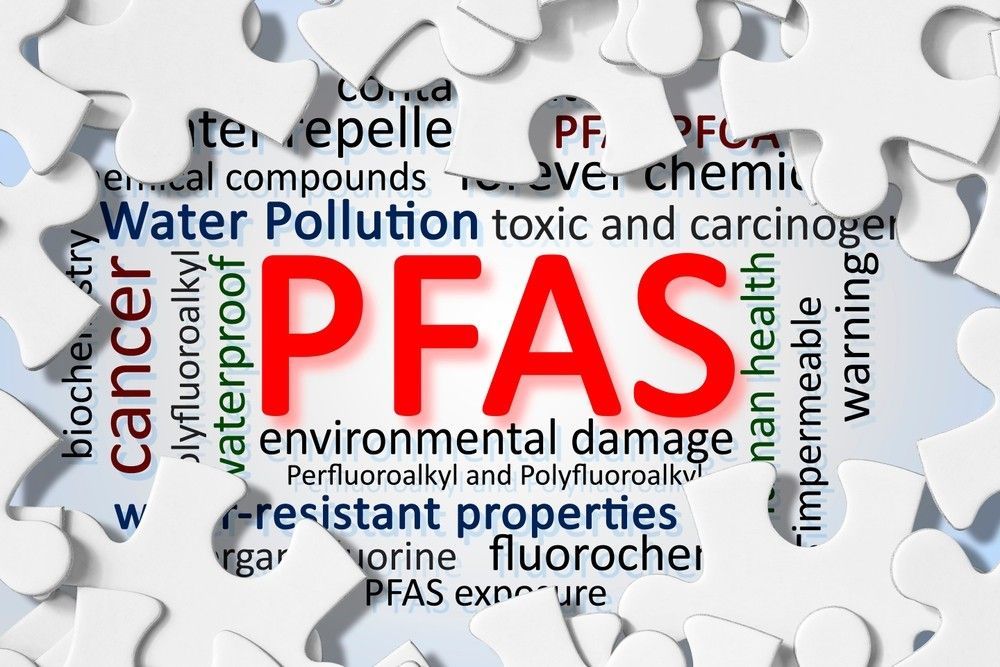
PFAS are dangerous. They’re called “forever chemicals” because they do not break down. These chemicals are found in water, air, and soil. And now, they’re in your tap water. What Are PFAS? PFAS stands for per- and polyfluoroalkyl substances. These are man-made chemicals used in products like: Non-stick cookware Firefighting foam Water-repellent fabrics Fast-food packaging They’re everywhere. And once they’re in your water, they stay. Why Are PFAS a Big Deal? PFAS in water can cause serious health problems. The EPA and medical researchers have linked PFAS exposure to: Cancer Liver damage Hormone disruption Immune system issues Low birth weight Even small amounts are dangerous over time. That’s why the EPA set new limits in 2024. The EPA has set strict limits for six PFAS chemicals. Municipal water systems are now required to test and treat for them. But these systems can’t always keep up. That means your home or business could still be at risk. How Do You Know If PFAS Are in Your Water? PFAS have no taste, smell, or color. You can’t see them. You need to test your water . It’s fast and affordable, and we test for multiple contaminants, including PFAS. If you already have a filtration system, we can test its performance. What Happens If PFAS Are Found? Don’t panic. PFAS can be removed. But not with a standard filter. You need advanced filtration for PFAS: Reverse Osmosis (RO) Activated Carbon Filters Ion Exchange Systems We specialize in PFAS removal systems and offer options for both homes and businesses . Municipal treatment upgrades can take years. Meanwhile, PFAS are still coming through the tap. The good news? You don’t need to wait. We install targeted PFAS filtration systems. These systems work at the point of entry (whole home or business) or point of use (like under your kitchen sink). They’re: Cost-effective Easy to maintain Proven to reduce PFAS We don’t believe in a one-size-fits-all system. We build the right solution for your property. Protect Your Family Your family deserves clean water. Our whole home PFAS filters and RO systems remove harmful chemicals. Home water filtration is now more important than ever. Especially if you live near military bases, airports, or industrial sites. We offer: Free in-home water testing Custom PFAS removal systems Maintenance and filter replacement services Protect Your Staff and Customers Bars, restaurants, coffee shops, and offices all depend on clean water. So do surgery centers and dental offices. PFAS can affect ice machines, coffee brewers, food prep, and sterilization equipment. That puts your customers—and your reputation—at risk. We install commercial PFAS removal systems that: Improve water quality Protect equipment Ensure compliance Reassure your guests and clients Your business runs better with clean, safe water. Why Choose Us? We’re experts in water filtration and PFAS removal. Our team has years of experience working with homes, restaurants, and medical centers. We don’t just install filters—we provide peace of mind. Our PFAS solutions are: Chemically engineered for results Designed for long-term protection Backed by professional service and support We use the latest technology in reverse osmosis systems, whole-house filtration, and activated carbon systems. And we tailor it to your specific water source and usage. Benefits of Filtering PFAS When you install a proper filtration system, you: Avoid health risks Improve taste and odor Extend appliance life Gain peace of mind Meet upcoming regulations Don’t wait for the city to fix the water. Take control now. Schedule a Free Water Test PFAS won’t go away on their own. But with the right system, you can remove them completely. Let us help you with a free water consultation. We’ll test your water, explain the results, and build a solution that fits your budget. We serve homes, restaurants, offices, hotels, surgery centers, and more. PFAS are a real threat . But with the right water filtration system, they don’t have to be a problem. We help you take action—without breaking the bank. Whether it’s your home or business, we’ve got you covered. Don’t guess—test. Then fix it right.

Serve Better Water. Protect Your Equipment. Impress Every Customer. Running a restaurant or bar is about the details—cleanliness, taste, and experience. That starts with your water. Water Matters in Every Sip and Every Dish Water is everywhere in your business. You use it for cooking, cleaning, ice, drinks, and coffee. If your water tastes bad, everything does. If your water leaves spots, customers notice. Bad water makes great food taste average. And it can ruin your equipment over time. Customers Notice They might not say it, but they know. Cloudy ice in a cocktail? Flat soda? Bitter coffee? Metallic aftertaste? These are signs of unfiltered water. And in a competitive market, even small details like this cost you repeat business. The Hidden Cost of Bad Water Unfiltered water causes real damage: Limescale builds up in dishwashers, water heaters, and ice machines. Minerals clog coffee machines and soda lines. Corrosion shortens the life of taps, boilers, and mixers. Stains appear on glassware and utensils. Health risks rise when contaminants like chlorine, sediment, or PFAS sneak in. Over time, these issues mean more repairs, replacements, and downtime. That hits your bottom line. Filtration Protects Your Brand Every plate. Every pint. Every glass. Water touches it all. The better your water, the better your brand reputation. Installing commercial-grade water filtration helps you: Improve taste Ensure consistency Prevent damage to appliances Reduce costly maintenance Show customers you care about quality Water Impacts Every Area of Your Operation 1. Beverages Customers expect their drinks to taste great. Water is the base for coffee, tea, soda, and cocktails. Filtration removes chemicals, metals, and chlorine that affect flavor. No more lemons to cover up the chlorine smell! 2. Ice Nobody wants cloudy or funky-tasting ice. A high-quality ice machine filter ensures crystal-clear cubes. Customers notice the difference immediately. No one wants to pay top dollar for a cocktail with cloudy, dirty ice! 3. Cooking and Baking Chefs use water to boil, steam, rinse, and mix. Bad water can alter the flavor and appearance of your dishes. Chlorine, hardness, and iron affect pasta, rice, dough, and more. 4. Dishwashing Hard water leads to spots on glasses and streaks on plates. Making even clean dishes look dirty. Filtration keeps your dishware sparkling, without extra polishing. 5. E quipment Protection Expensive tools like espresso machines, water heaters , steam ovens, and combi ovens need protection. Hard water shortens their lifespan and lowers efficiency. A targeted filtration system prevents scale buildup and protects your investment. 6. Cleanliness and Safety Sediment and organic matter in water can cause bacteria to grow in lines and machines, putting food safety and cleanliness at risk. Filtration helps meet health code standards and avoid violations. At Fix Any Water / Safeway Water Technologies, we know your needs are unique. That’s why we offer Free Water Testing. We come to you. We test your water on-site. Look at your equipment. We explain what’s working, what's not, what's in your water and what you need. We don’t sell cookie-cutter systems. We match the right filter to your water. Whether you need reverse osmosis, softeners, sediment filters, or carbon systems, we design them right. Our trained technicians install everything professionally. We make sure it works before we leave. We service what we install. We handle filter changes, inspections, and emergency service. You focus on your business—we’ll handle your water. Health departments require clean water. So do beverage equipment warranties. We help you stay compliant and protect your equipment warranties. The Benefits of Clean, Filtered Water Better tasting drinks Cleaner dishes Happier guests Lower equipment repair bills Longer life for expensive appliances Higher online reviews Safer food prep Peace of mind We Work With All Water Sources. Whether you’re on city water or well water, we can help. Chlorine? PFAS? Hardness? Iron? Sulfur smell? We’ve seen it all—and fixed it all. Don’t Wait Until Water Costs You Customers Water is easy to overlook—until it causes a problem. The cost of not filtering your water is high. Equipment repairs. Negative reviews. Bad taste. Unhappy guests. Instead, invest in quality now and enjoy peace of mind. Our systems pay for themselves by protecting your kitchen, boosting your flavor, and improving your reputation. Get a free on-site water test today. Let us show you what’s in your water—and how to fix it. 📞 Call us or 📩 contact us online to schedule your visit. Clean water isn’t a luxury. It’s a must-have for every successful restaurant or bar.

There are several signs that your tap water may be unsafe or contaminated: Foul odor or bad taste (like bleach or metal) Cloudy or discolored water Skin irritation after bathing White scale buildup on faucets and appliances Stomach issues, especially in kids or elderly family members Even if none of these signs are present, contaminants could still be there—you can't see PFAS , arsenic, chlorine, or lead with the naked eye. How to Test Your Water in Port St. Lucie The best first step is to get a professional water test. At Fix Any Water, we offer: Free in-home water testing Certified lab analysis for detailed results Expert consultation to explain what the results mean and what to do next How Fix Any Water Protects Your Home and Family We customize water treatment systems to target exactly what’s in your water. Some of our most popular solutions include: 🛡️ Whole Home Water Filtration Removes chlorine, sediment, PFAS, arsenic, and more Protects every faucet, appliance, and shower 💧 Reverse Osmosis Drinking Systems Pure, clean drinking water at your kitchen sink Removes up to 99% of contaminants including PFAS, arsenic, and lead 💦 Water Softeners Eliminate hard water damage to plumbing and appliances Softer skin, better tasting water, and longer appliance life Real Reviews from Port St. Lucie Homeowners “I had no idea how much chlorine was in our water until Fix Any Water showed me. Now, it tastes amazing and our skin feels better too!” – J. Rodriguez “We had our baby last year and wanted to be safe. Their system gave us peace of mind.” – L. Thompson Take Action: Protect Your Water Today Don’t wait until there’s a boil notice or a water advisory. Be proactive. ✅ Get a free water test ✅ See what’s really in your tap water ✅ Get expert recommendations, no pressure 📞 Call Now or Book Online 👉 Schedule your free test online today Let’s make sure your family drinks only the cleanest, safest water possible.

Water is life. We drink it. We bathe in it. We cook with it. But is today’s water safer than it was in the 1970s? Let’s look back. The 1970s were a turning point. America was waking up to pollution. Factories dumped waste into rivers. Oil spills hit the headlines. Acid rain made news. And drinking water? It wasn’t as safe as people thought. The Safe Drinking Water Act was passed in 1974. This was a major law that gave the government power. The EPA (Environmental Protection Agency) could now set rules. Limits were placed on dangerous contaminants. Before that, water safety was a gamble. We thought all was good. Back then, lead pipes were common. Many homes still had them. Lead is dangerous. Especially for children. In 1970, most people didn’t know that. Now we do. Chlorine was used more heavily. It kills bacteria. But it also creates byproducts. Some byproducts may cause cancer. We didn’t know that in the '70s, but we monitor for it today . Fluoride was added to water. In the 1970s, this was seen as a win. Tooth decay dropped. But now, the debate continues. Some studies suggest fluoride may be harmful to ingest. Especially to young children. Today, fluoride levels are more strictly managed. Another concern: agricultural runoff. Pesticides and fertilizers were used freely. These seeped into water supplies. Nitrates and phosphates caused problems. In the 1970s, there were few rules. Today, we test for those. But problems still happen. Fast forward to now. Is water safer? In many ways, yes. We have better testing. More rules. Better filtration. More public awareness. We can test for over 90 contaminants now. That includes metals, bacteria, chemicals, and radiation. In the 1970s, we tested for far fewer. Today’s technology can detect trace amounts. We can find problems faster. And we can fix them. However, new problems have emerged. PFAS is a big one. They’re called “forever chemicals.” They don’t break down. They’ve been used in Teflon, firefighting foam, and more. Now, they’re in water systems. We didn’t know about PFAS in the 1970s. Now, it’s a national concern. Microplastics are another issue. Tiny plastic pieces are everywhere. In rivers. In oceans. Even in bottled water. They didn’t exist in the 1970s like they do now. Today, they’re a growing concern. Then there are pharmaceuticals. People flush medications. Or they pass through our bodies. Water systems weren’t designed to filter them. So small traces stay in our water. The 1970s didn’t worry about this. Now, scientists study it. Let’s talk infrastructure. Many water pipes are old. Some date back to the early 1900s. Others were built in the 1970s. Lead, copper, iron – they corrode. Leaks and contamination happen. Flint, Michigan, showed us this. Modern water is safer if the infrastructure is maintained. But many systems are still outdated. Boil water notices happen more often. Why? Because detection is better. We catch bacteria faster. We warn the public sooner. In the 1970s, you might not have been warned at all. Now, alerts are instant. Private wells are still unregulated. They were common in the 1970s. Still common now. But today, well owners have access to better testing. They can test for bacteria, metals, and nitrates. Companies like Fix Any Water can help. Rainwater collection is on the rise. In the 1970s, it was rare. Now, it’s part of sustainability efforts. But it must be filtered. Today’s technology makes it safer. UV lights, filters, and ozone systems help. Bottled water didn’t take off until the late 1970s. Now it’s a huge industry. But bottled water isn’t always better. Sometimes, it’s just filtered tap water. Plastic bottles can leach chemicals. Especially if left in the sun. Also, bottled water isn’t held to the same standards as tap water. Surprising, but true. Home water systems have improved. In the 1970s, few homes had filters. Now, reverse osmosis, carbon filters, and softeners are common. People want control. They want peace of mind. So is water safer now? Yes – and no. It’s better regulated. Better tested. But also under new threats. Old systems, new chemicals, and global pollution complicate things. What can you do? Test your water. Every home is different. Public water changes. Private wells need regular checks. Install the right filtration. Not all filters are equal. Know what’s in your water first. Maintain your system. Filters wear out. Replace them on schedule. Stay informed. Watch for news about boil water notices, recalls, and contamination alerts. Know your pipes. Homes built before 1986 may have lead plumbing. Replace old pipes if you can. Water is still life. And it should still be safe. We’ve come a long way since the 1970s. But we must keep improving. At Fix Any Water, we stay ahead of the curve. We test, treat, and maintain water systems for homes and businesses. We offer systems that remove chlorine, lead, PFAS, microplastics, and more. We don’t rely on chemicals. We offer solutions that protect your family. From the kitchen sink to the shower. From coffee shops to surgery centers. Your water should be better than it was in the '70s. And with our help, it will be.
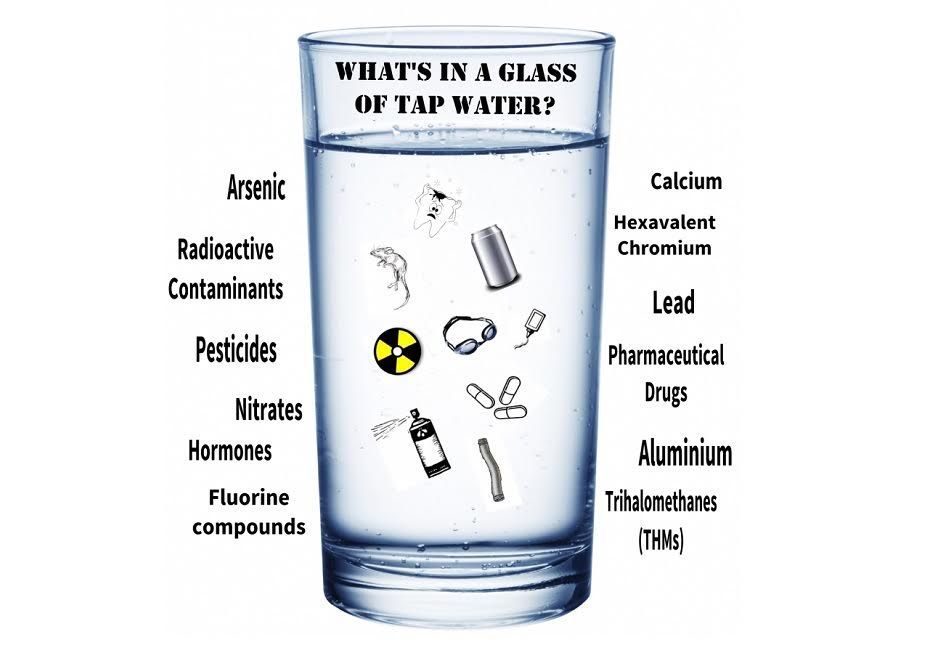
The water treatment industry isn't without its challenges. From changing water chemistry to shifting regulations, companies like ours must stay ahead of the game every single day. At Safeway Water Technologies , we don’t just acknowledge the problems—we solve them! Here’s how we rise above the five most common issues water treatment companies face and why that matters for you, our customers. 1. Inconsistent Water Quality Across Regions The Problem: No two water sources are exactly alike. Whether it’s well water in a rural area or city water full of disinfectants, or a large surgery center in need of meeting FDA guidelines, every home and business has unique needs. Our Solution: We start every relationship with a free, in-depth water test and site inspection. From there, we customize every system—whether it’s a softener, carbon filter, UV, DI, reverse osmosis, pressure tanks, chemical feed system, or something else. Our techs are trained to adapt and configure solutions that are right for your exact conditions. That means fewer callbacks, longer-lasting systems, and better water—guaranteed. 2. Lack of Proper Customer Education The Problem: Many people don’t fully understand their water problems or how the systems work. That can lead to confusion, neglect of maintenance, or even buyer’s remorse. Our Solution: Education is a core part of our process. We take time to explain what’s in your water, why it matters, and how our system will fix it—in plain language. We give you clear maintenance instructions, and our team follows up with friendly reminders and check-ins. We even offer service plans. Our goal? Empowered, confident customers who know they made the right choice. 3. Supply Chain and Equipment Delays The Problem: It’s no secret: The last few years have been tough on supply chains. Valves, tanks, and specialty filters don’t always arrive when promised. Our Solution: We’ve built strong partnerships with multiple suppliers and keep critical components in stock at our facilities. We also offer temporary solutions to avoid downtime. Our scheduling team is proactive and honest—we’d rather give you a realistic timeline than overpromise and underdeliver. 4. Recruiting and Retaining Skilled Technicians The Problem: There’s a nationwide shortage of skilled tradespeople, and water treatment techs need to be both mechanically savvy and good with people. Our Solution: We hire smart, train thoroughly, and invest in our team. Every technician goes through hands-on technical training, customer service coaching, and ongoing education on the latest products and codes. We also treat our people right—with competitive pay, benefits, and a supportive team culture. When you meet a Safeway tech, you’re meeting someone who cares. 5. Staying Compliant with Evolving Regulations The Problem: From new PFAS limits to the AAMI ST108 standard for surgery centers, regulations are always changing—and falling behind can be risky. Our Solution: We stay ahead of the curve by constantly monitoring updates from the EPA, local municipalities, and industry groups. We’ve already helped dozens of clients upgrade to meet AAMI ST108 compliance, and we offer specialized systems to tackle PFAS, lead, chlorine, and other regulated contaminants. We handle the technical details so you can stay focused on your business or family. Water treatment may be a complex industry, but it doesn’t have to be complicated for the customer. At Safeway Water Technologies, we’ve built a company that anticipates problems, adapts quickly, and always puts service first. That’s how we overcome industry-wide challenges—and that’s why our customers stay with us for the long haul. Have questions about your water? Give us a call at 866-928-3795 to schedule your no-charge water test today. We’re ready to help.
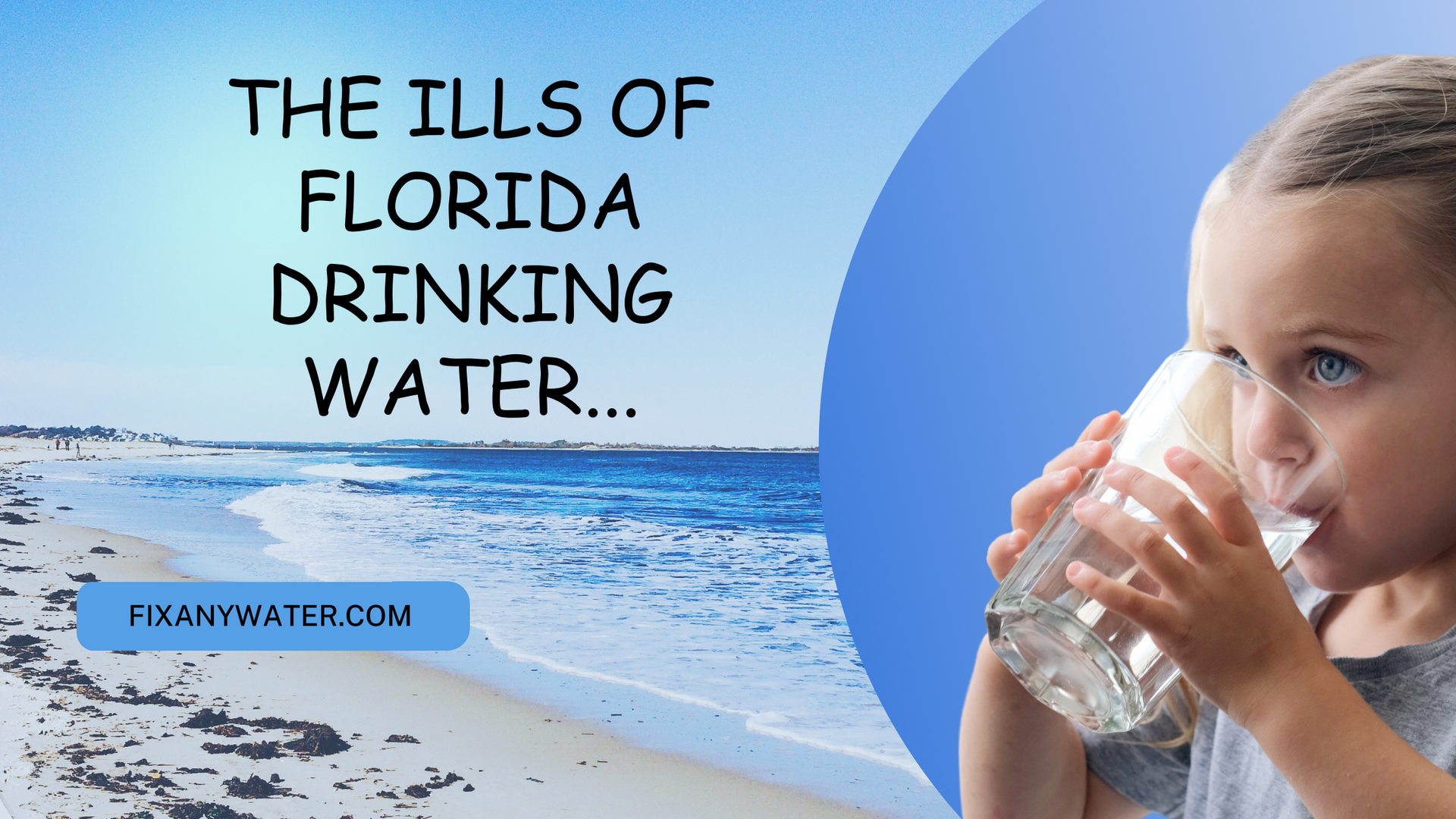
Florida is beautiful. The sun is warm. The beaches are stunning. But the drinking water? That’s another story. At Safeway Water Technologies , we see the truth every day. The water may look clear, but it often carries hidden dangers. And most people don’t realize what they’re really drinking. Let’s explore what’s wrong with Florida’s water—and how we can help you fix it. 1. Too Much Chlorine Florida water is heavily chlorinated. Cities use chlorine to kill germs. That’s important. However, excessive chlorine can be harmful. It dries your skin. It makes your water taste bad. And it smells like a pool. Chlorine may also react with other substances in the water to form harmful byproducts. At Safeway Water Technologies, we install systems that remove chlorine from your water before it ever touches your skin or enters your glass. 2. PFAS – Forever Chemicals PFAS are toxic. These chemicals never break down. They’re found in non-stick pans, firefighting foam, and industrial waste. They’ve also been found in Florida’s drinking water—especially near military sites and factories. These chemicals are linked to cancer, hormone issues, and immune problems. Our advanced carbon and reverse osmosis systems target and reduce PFAS levels. So your family is safe from chemicals you can’t see or taste. 3. Hard Water = Hard Life Florida has some of the hardest water in the country. That means high mineral content. Hard water damages pipes. It shortens appliance life. It stains dishes. It ruins water heaters and it dries out your hair and skin. Safeway Water Technologies installs top-tier water softeners. They remove those harsh minerals. Your home stays clean. Your plumbing stays healthy. Your skin feels softer. 4. Pesticides and Fertilizer Runoff Florida's agriculture plays a big role in our economy. But it affects our water, too. Fertilizers and pesticides seep into lakes, rivers, and aquifers. These chemicals then show up in your tap water. You can’t boil them out. Over time, they can cause serious health issues. Our systems filter out nitrates, herbicides, and other dangerous runoff. Clean water means peace of mind. 5. Toxic Algae Algae blooms are common in Florida. Some produce toxins that can damage the liver or brain. Even when water looks clear, trace toxins may remain. Safeway Water Technologies offers advanced filtration and UV disinfection options. These eliminate microorganisms without adding chemicals to your water. 6. Old Pipes, New Problems Many homes and buildings in Florida still use old plumbing. These pipes corrode. They rust. Lead and other heavy metals can leach into your water. Our whole-home filtration systems stop sediment, rust, and metal before it gets into your body. 7. Saltwater Intrusion Rising sea levels cause saltwater to seep into freshwater wells. This is a growing problem across coastal Florida. Saltwater tastes bad. It damages plumbing. It ruins appliances. Safeway Water Technologies has solutions. Our filtration systems can handle these changes, giving you fresh, clean water in any season. What Can You Do? You don’t have to live with bad water. And you don’t have to figure it out alone. Here’s how Safeway Water Technologies / Fix Any Water can help. Step 1: Get a Free Water Test - We’ll test your water at no charge. We check for chlorine, PFAS, hardness, metals, and more. You’ll know exactly what’s in your water—and what needs to be done. No guesswork. Just clear answers. Step 2: Choose the Right System - We don’t believe in cookie-cutter solutions. We build custom systems for each home and business. Whether you need softening, filtration, or reverse osmosis—we design what fits your exact water issues. Step 3: Protect Your Family and Your Property - Our systems stop chlorine, PFAS, sediment, metals, and bacteria. Your water will taste better. Your skin will feel better. And your appliances will last longer. We use only proven technology. Installed by experienced pros. Backed by full service and support. Step 4: Stay Safe With Ongoing Service - Water quality changes. Filters wear out. Systems need love. That’s why we offer regular maintenance plans. We keep your water safe—month after month, year after year. Why Choose Safeway Water Technologies? We’re local. We know Florida water. We test before we treat. We custom build every system. We service what we sell. We care about your family’s health. From homes to businesses to medical centers—we’ve got the tools and the team to protect your water. Florida is paradise—but the water isn’t perfect. Chlorine. PFAS. Hardness. Pesticides. Salt. Rust. Algae. The list goes on. But with Safeway Water Technologies, you don’t have to worry. We bring clean, safe, and refreshing water straight to your tap. Protect your home. Protect your health. Start with a free test today. Call Safeway Water Technologies or visit us at Safewaywatertechnologies.com to schedule. Because clean water isn’t a luxury. It’s a necessity.
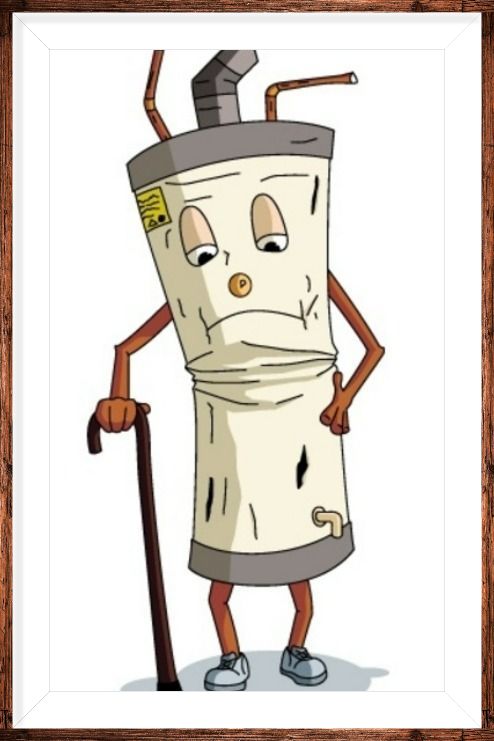
How Hard Water Damages Hot Water Heaters—And How We Fix It Hard water causes real problems. It harms water heaters in homes and businesses. Most people don’t see it happening. But the damage is constant. And it costs you money. What Is Hard Water? Hard water contains minerals. Mainly calcium and magnesium. These minerals are natural b ut they don’t belong in your water heater. When water heats up, minerals solidify. They form scale inside the tank. That scale sticks to heating elements and tank walls. Scale buildup is like plaque. It coats everything inside the water heater. That layer slows down heat transfer. So the heater works harder. And it uses more energy. Your energy bill goes up. The water doesn’t heat as fast. And the unit wears out early. Hard Water in Residential Hot Water Heaters Home water heaters suffer silently. The scale keeps growing with each shower or wash. Over time, it takes longer to heat water. The tank starts to make popping or rumbling sounds. That’s scale breaking loose and bouncing around. Eventually, the heater fails. You’re left with cold water. And a big repair bill. Hard Water in Commercial Water Heaters Businesses have it worse. Restaurants, laundromats, hotels, and gyms rely on hot water. Hard water scale builds even faster under heavy use. It damages large commercial units. The scale coats heat exchangers, burners, and tanks. It reduces efficiency and capacity. Sometimes the system shuts down. When that happens, business stops. No hot water, no service. You might pay thousands to replace it. And thousands more in lost business. Signs of Hard Water Damage Here’s what to watch for: Strange noises from your water heater Water takes too long to get hot Hot water runs out too fast Higher utility bills Cloudy tap water White crust around faucets and drains These are warning signs. Don’t ignore them. Our Solution: Water Softening At Safeway Water Technologies , we fix this. Our water softeners remove the minerals that cause scale. No calcium. No magnesium. Just clean, soft water. With soft water, scale doesn’t form. Your water heater runs like new. It lasts longer. Heats faster. And saves you money. Whole-Home Water Softeners For homeowners, we install whole-home softeners. They treat all the water before it enters your pipes. That protects every appliance. Including your water heater, dishwasher, and washing machine. Soft water means fewer repairs. And a longer life for your equipment. Commercial Water Softeners For businesses, we go bigger. We design custom systems for your volume and flow needs. From small offices to big hotels, we’ve got it covered. Our commercial water softeners are built for heavy use. They keep your equipment clean and efficient. And your hot water reliable. Preventive Maintenance Plans We offer service plans too. Regular maintenance keeps your system running smoothly. We check the softener. Deliver salt. Repair systems. Test water hardness. And stop problems before they start. It’s simple. And it saves you a lot over time. Why Choose Us? We know water. We know how hard water affects appliances. And we know how to prevent water damage. Our systems are tested and proven. We serve both homes and businesses. From simple softeners to full water management plans, we do it all With Safeway Water Technologies, you get: Expert installation Reliable equipment Honest advice Fast service Long-term support We don’t just install systems. We protect your property. And your peace of mind. Don’t Wait Until It Breaks Hard water damage is sneaky. By the time you notice, it may be too late. Don’t wait for your hot water heater to fail. Call us now. We’ll test your water for free. We’ll show you what’s in it. And we’ll build a solution just for you.

In healthcare, water plays a key role in cleaning, rinsing, and sterilizing instruments. That’s why AAMI released ST108 . It’s a new standard for water quality in medical device processing. While not required yet, it’s strongly recommended. Surgery centers should pay close attention. ST108 stands for "Water for the Processing of Medical Devices." It was approved in August 2023. This new standard replaces AAMI TIR34, which was a technical report. ST108 is more formal. It lays out specific water quality guidelines. But here’s the key: ST108 is not yet required. However, it is widely recommended for surgery centers that want to stay ahead. Surgery centers process critical and semi-critical reusable instruments daily. These tools must be cleaned properly. Sterilization only works if the water used is pure and consistent. Poor water quality can: Leave spots or film on tools Cause equipment corrosion Interfere with sterilization Lead to infection risks ST108 offers guidance to prevent these problems. It helps protect patients, staff, and instruments. While ST108 isn’t enforced by law, accreditation agencies and surveyors are beginning to look for signs of compliance. It’s a sign of excellence. It shows a center is going above the minimum. Centers that follow ST108 stand out. They reduce risks, increase trust, and make inspections easier. What ST108 Recommends The standard defines three water types: Utility Water – used for flushing and cleaning Critical Water – used for final rinses and steam Steam – used in sterilizers Each has quality benchmarks for: pH Conductivity Hardness Organic and inorganic contaminants Microbial levels Endotoxins Meeting these levels means installing or upgrading water systems. That might include: Whole-home softeners Reverse osmosis units Ultraviolet disinfection Carbon backwashing filters UV Lights Sediment filters Booster pumps or other equipment Safeway Water Technologies specializes in water filtration and water treatment. We currently serve many surgery centers, medical clinics, and hospitals. We know the ST108 standard inside and out. We can help by: Testing your current water Reviewing your existing system Recommending upgrades Installing new filtration systems Offering preventive maintenance Providing documentation You don’t need to figure this out alone. We’ll walk you through it. Since ST108 isn’t required, some centers may wait. But waiting has risks. Tools may not be cleaned properly Biofilm can buildup in pipes or filters Auditors may ask about ST108 readiness Long-term costs may rise from equipment damage You may miss a chance to improve patient safety Even though it’s voluntary, following ST108 is a smart business and clinical decision. Compliance doesn’t happen overnight. It takes time and planning. Here’s what you can do now: ✅ Form a water management team ✅ Test your water sources ✅ Review your treatment systems ✅ Read the ST108 standard ✅ Get help from water experts ✅ Document improvements Even small steps matter. They show intent. They show awareness. They show leadership. While ST108 isn’t a regulation, auditors often look for best practices. Accrediting bodies such as AAAHC and The Joint Commission care about water quality. They may reference ST108 when evaluating sterilization processes. Centers that follow it may have smoother inspections. They’ll also have clearer documentation and fewer corrective actions. We Make ST108 Easy Our company offers turnkey solutions: Custom water treatment plans Installation of softeners, filters, and RO systems Regular service and performance checks Logbooks and testing results for inspections We focus on simplicity. Our goal is to keep your surgery center running smoothly. You handle patients. We handle the water. Long-Term Benefits of ST108 Even if not required, ST108 has BIG benefits: Cleaner instruments Less downtime Better sterilization results Fewer repairs on washers or sterilizers Happier inspectors Safer outcomes That’s a win for everyone. VA and Federal Attention The VA is already encouraging water management in line with ST108. The VHA Directive 1116(2), effective in January 2024, stresses water quality for device reprocessing. It mirrors many ST108 ideas. Other agencies may follow soon. This shows where things are heading. ST108 may become mandatory in the future. Starting now gives your center a head start. Be Proactive, Not Reactive AAMI ST108 is not law. But it is smart. It protects patients, boosts compliance, and shows leadership. For surgery centers, it’s a chance to rise above the minimum. The best centers don’t wait for rules. They prepare early. They improve constantly. They value water quality as part of patient safety. If you're ready to explore ST108, we’re ready to help. We’ll guide you, test your water, recommend improvements, and support your team with worry-free service. Let’s make clean, compliant water one less thing for your staff to worry about. Contact Safeway Water Technologies here to start your water journey.

Droughts are becoming increasingly common. When they happen, water supplies shrink, which can lead to serious problems for drinking water. A drought is a long period without rain. It causes lakes, rivers, and reservoirs to dry up. This could be a little or a lot. When water sources shrink, the quality of the water changes. Droughts impact drinking water in many ways. Some problems are obvious, and others are hidden but just as harmful. Lower Water Levels Droughts cause water levels to drop. Many towns and cities rely on surface water from lakes and rivers. When these sources dry up, there is less water to go around. Groundwater levels also fall. Wells can run dry. People who depend on private wells may struggle to find water. Higher Concentration of Contaminants When water levels drop, contaminants become more concentrated. Pollutants, minerals, and bacteria build up in the remaining water. This can make water unsafe to drink. It may also cause taste and odor problems. Common Water Problems During a Drought Droughts can introduce many new risks to drinking water. Some of the most common include: Increased Sediment in Water When reservoirs shrink, more dirt and debris mix into the water. This can cause water to be cloudy and harder to treat. Sediment can also damage pipes and appliances. It may shorten the life of water filters as well. Higher Levels of Bacteria Low water flow means warmer water. Bacteria thrive in warm conditions. This can be dangerous. Harmful microbes like E. coli can grow easily in warmer waters. This raises the risk of waterborne illnesses. More Harmful Chemicals When water is scarce, pollution becomes a bigger problem. Industrial waste, pesticides, and fertilizers become more concentrated. Nitrate levels often rise. This is dangerous for infants and people with health conditions. Increased Salt Content In coastal areas, droughts can lead to saltwater intrusion. When freshwater supplies shrink, salty ocean water seeps into wells. This makes drinking water salty and undrinkable. It can also corrode pipes and plumbing fixtures. How Droughts Affect Water Treatment Plants Water treatment plants work hard to keep water safe. But during a drought, their job becomes harder. Low water levels mean more contaminants. This forces treatment plants to use more chemicals. Extra treatment can change the taste and smell of water. Some people notice a more chlorine-like odor. Others may taste earthy or metallic flavors as well. Struggles with Supply Some treatment plants rely on large reservoirs. If these dry up, they must find new sources. Switching water sources can introduce new contaminants. It may also require new filtration methods. Water Restrictions During a drought, many areas limit water use. You may not be able to water your lawn or wash your car. Sometimes, restrictions affect drinking water, too. People may need to boil water before drinking it. In extreme cases, bottled water or filtration may be the only option. If you live in a drought-prone area, preparation is key. Install a Home Filtration System A water filtration system removes many contaminants. It can improve taste, remove sediment, and eliminate harmful bacteria. Reverse osmosis is one of the best options. It removes salts, nitrates, and chemicals. A whole-home filtration system can protect your entire water supply. Use Water Softeners if Needed If drought conditions cause high mineral levels, a water softener can help. It removes hardness and prevents buildup in pipes and appliances. Soft water can also extend the life of your water heater and dishwasher. Test Your Water Regularly Drought conditions change water quality. Regular water testing helps you stay informed. Test for bacteria, nitrates, and heavy metals. If you notice changes in taste or smell, test your water immediately. Store Emergency Water In severe droughts, water shortages can happen. Keep an emergency supply of clean drinking water. Store at least one gallon per person per day. Keep enough for at least three days. What Happens When a Drought Ends? Rain may return, but the effects of a drought linger. When rain finally comes, it can wash dirt and debris into water supplies. Flooding can carry pesticides and sewage into rivers and lakes. This can cause temporary water quality problems. Long droughts can also cause cracks in pipes. When water starts flowing again, leaks and breaks may appear. This can lead to boil water advisories or water shortages. Why Water Filtration Matters No matter the weather, clean drinking water is essential. A water filtration system gives peace of mind. It removes harmful contaminants and improves water taste. In drought conditions, it provides an extra layer of protection. Droughts can have a big impact on drinking water. They lower water levels, increase pollution, and make treatment more difficult. If you live in a drought-prone area, take the proper steps to protect your water. Install a filtration system, test your water, and store an emergency supply. Clean water is a necessity. With the right precautions, you can keep your drinking water safe—no matter the conditions.
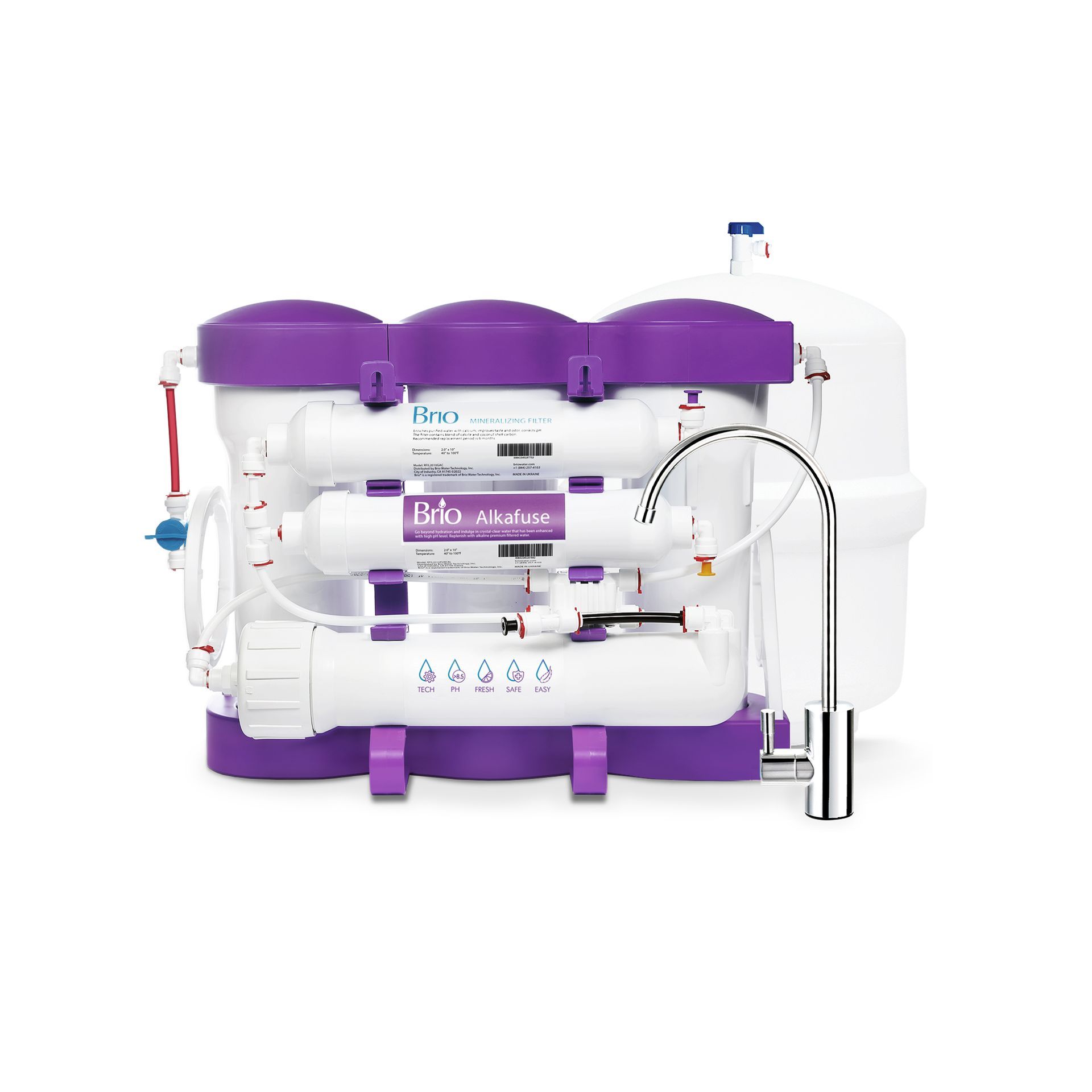
Water is essential. But is your water clean and safe? Many homeowners assume their water is safe, especially if it appears clear. Unfortunately, this is not always true. Why Water Quality Matters Clean water is important for health. Contaminated water can cause sickness. It can also damage appliances. Hard water leaves stains and buildup. Chemicals like chlorine affect taste and smell. A water filter can help. But do you need one? Let’s explore the signs. Signs You Need a Water Filter Not sure if you need a filter? Watch for these warning signs: 1. Bad Taste or Odor Does your water taste strange? Does it smell like chlorine or rotten eggs? These are signs of contamination. A water filter can improve taste and remove odors. 2. Cloudy or Discolored Water Clean water should be clear. If your water looks cloudy, brown, or yellow, it may contain sediments, rust, or minerals. A water filtration system removes these impurities. 3. Hard Water Buildup White spots on dishes? Scale buildup on faucets? Soap that won’t lather? These are signs of hard water. A water softener can fix this issue. 4. Skin and Hair Problems Hard water makes skin dry and itchy. It also causes brittle hair. A whole-house filtration system can soften water and improve your skin and hair. 5. Lead or Other Contaminants Older pipes can contain lead. Some areas have high levels of PFAS, nitrates, and other pollutants. A reverse osmosis system removes dangerous contaminants. 6. Frequent Plumbing Issues Mineral buildup can clog pipes. Over time, this leads to costly repairs. A water filter can prevent damage to your plumbing system. 7. Well Water Concerns Do you use well water? It may contain bacteria, iron, or sulfur . A UV filter and carbon filter can protect your water supply. 8. Chlorine and Chemical Concerns City water often contains chlorine. While it kills bacteria, it also affects water quality. A carbon filter removes chlorine for better-tasting water. 9. Appliance Wear and Tear Hard water shortens the life of dishwashers, coffee makers, and water heaters. A water filtration system protects your appliances. Types of Water Filters If you notice any of these issues, a filter can help. But which one should you choose ? 1. Carbon Filters Carbon filters remove chlorine, odors, and some chemicals. They improve taste and smell. These are found in pitcher filters, faucet filters, and whole-house systems. 2. Reverse Osmosis Systems Reverse osmosis (RO) removes lead, arsenic, nitrates, and PFAS. It’s one of the most effective filtration methods. An under-sink RO system provides pure drinking water. 3. Water Softeners Water softeners remove calcium and magnesium. This prevents scale buildup in pipes and appliances. Soft water is better for skin, hair, and cleaning. 4. UV Water Purifiers UV systems kill bacteria, viruses, and parasites. They are great for well water users. 5. Whole-House Filtration Systems A whole-house system filters water at the main supply. It removes sediments, chlorine, and other contaminants before the water reaches your taps. Choosing the Right Water Filter Not all homes need the same filter. The right choice depends on your water quality. Step 1: Test Your Water A water test identifies contaminants, hardness levels, and chemical residues. Testing helps you choose the right filtration system. Step 2: Determine Your Needs Bad taste or chlorine? Get a carbon filter. Hard water issues? Install a water softener. Heavy metals or PFAS? Use reverse osmosis. Bacteria concerns? Consider a UV system. Multiple issues? A whole-house filtration system may be best. Step 3: Get Professional Advice A water filtration expert can help. They will analyze your water and recommend the best solution. Benefits of Using a Water Filter Why invest in a water filtration system? Here are the key benefits: 1. Healthier Drinking Water Filtered water is safer. It removes harmful contaminants, chemicals, and bacteria. 2. Better Taste and Smell Say goodbye to chlorine, sulfur, and metallic tastes. Enjoy fresh, clean water every time. 3. Protects Your Plumbing and Appliances Filtration reduces mineral buildup in pipes, dishwashers, and water heaters. This extends their lifespan. 4. Softer Skin and Hair Hard water makes hair dull and skin dry. A water softener improves skin and hair health. 5. Saves Money Bottled water is expensive. A home filtration system provides clean water for less. It also prevents costly plumbing repairs. 6. Eco-Friendly Filtering water at home reduces plastic waste from bottled water. It’s a greener choice. If you have any of the signs listed, a water filter is a smart investment. The right system depends on your water quality and needs. Not sure where to start? Get your water tested. Then choose a filter that matches your needs. Clean, safe water is essential for your health, home, and lifestyle. A water filtration system makes sure you have the best quality water every day. Need help finding the right solution? Contact us today!
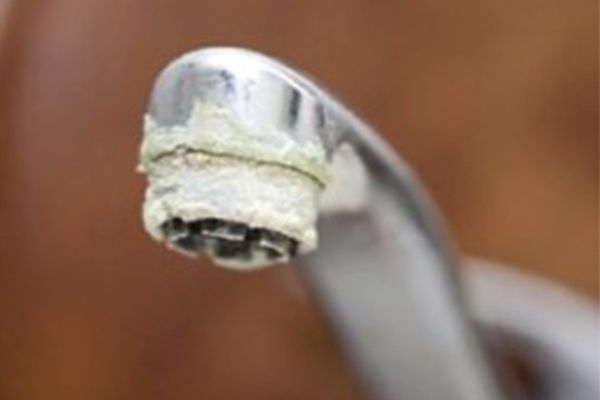
Calcium buildup on kitchen faucets is a common problem. It appears as white, chalky deposits. Over time, it can reduce water flow and damage fixtures. But what causes this issue? The main culprit is hard water. Hard water contains high levels of minerals, primarily calcium and magnesium. When water evaporates, these minerals remain behind. They form a hard, crusty residue known as limescale. Hard water is measured in grains per gallon (GPG). Anything above 7 GPG is considered hard. A water-treatment professional can test for this. The higher the hardness level, the more calcium buildup occurs. Water flows through your pipes and comes out of the faucet. As it dries, it leaves mineral deposits behind. Over time, these deposits build up, creating white spots and crusty layers. The problem worsens when: Water sits on surfaces and evaporates. Faucets are not wiped dry after use. Hot water speeds up mineral deposits. Other Factors Contributing to Buildup Besides hard water, other factors play a role in calcium buildup: Heat – Hot water evaporates faster, leaving more mineral deposits. Low Water Pressure – Slow-moving water allows minerals to settle. Aging Pipes – Older pipes may release more minerals into the water. Frequent Faucet Use – The more water flows, the more deposits accumulate. Calcium buildup isn't just an eyesore. It can also: Clog faucet aerators. Reduce water pressure. Shorten the lifespan of fixtures. How to Identify Hard Water in Your Home Signs of hard water include: White spots on dishes and glassware. Soap scum in sinks and tubs. Rough, dry skin after showering. Clothes feeling stiff after washing. If you notice these signs, your water likely contains high calcium and magnesium levels. Preventing Calcium Buildup The best way to prevent buildup is to treat hard water. Here’s how: A water softener removes calcium and magnesium. It exchanges hard minerals for sodium or potassium ions. Softened water reduces scale buildup. Install a water softener. Whole-home filters can reduce mineral levels. Point-of-use filters can help with drinking water. After using the sink, dry the faucet with a cloth. This prevents water from evaporating and leaving residue. Vinegar dissolves mineral deposits. Soak a cloth in vinegar and wrap it around the faucet. Let it sit for 30 minutes, then scrub with a brush. Weekly cleaning prevents heavy buildup. A mix of baking soda and vinegar helps break down limescale. Ignoring calcium buildup can cause major issues. Over time, it: Clogs pipes – leading to slow drainage. Damages water heaters – Hard water reduces efficiency and the overall life of the water heater. Increases appliance wear – Dishwashers and coffee makers suffer. Hard water can also increase energy bills. Appliances work harder when coated with limescale. A water softener is the most effective way to combat calcium buildup. It: Prevents scale formation. Extends the life of plumbing & fixtures. Improves soap lathering and cleaning power. Homes with water softeners see fewer issues with limescale, soap scum, and clogged fixtures. Calcium buildup on kitchen faucets happens because of hard water. As water evaporates, minerals settle on surfaces. Over time, this forms a chalky, white residue known as limescale. To prevent buildup, consider installing a water softener. Regular cleaning, drying faucets, and using vinegar solutions can also help. Hard water affects more than just faucets—it impacts appliances, pipes, and even your skin. Fixing the problem at the source ensures cleaner water, better efficiency, and longer-lasting fixtures. If you're dealing with hard water, investing in a water softener is the best solution.

Pets need clean water. Just like humans, they rely on fresh water to stay healthy. But tap water isn’t always the best choice. It can contain chlorine, heavy metals, and other contaminants. Filtered water removes these harmful substances. It’s a simple way to protect your pet’s health. Most people assume tap water is safe. However, it often contains chemicals and impurities. Chlorine and fluoride are common additives. Heavy metals like lead and mercury may also be present. These can build up in a pet’s body over time. Some areas have high levels of bacteria or nitrates. These contaminants can cause digestive issues. Filtered water removes or reduces these risks. Filtered water is free from harmful substances. It eliminates chlorine, heavy metals, and bacteria. This makes it safer for drinking. When pets drink clean water, their bodies function better. They stay hydrated and avoid toxic buildup. Hydration is key to good health. Dehydration can lead to kidney problems and other issues. Filtered water encourages proper hydration. Better Taste, More Drinking Pets prefer fresh, clean water. Chlorine can make water taste and smell bad. This may cause pets to drink less. Less water intake can lead to dehydration. Filtered water tastes better and is free from odors. When pets enjoy their water, they drink more. This supports kidney and urinary tract health. Health Benefits of Filtered Water Improved Digestion-Contaminants in tap water can upset a pet’s stomach. Filtered water is gentler on digestion. Healthier Skin and Coat-Chemicals in water can cause dry skin. Clean water promotes a shiny, soft coat. Better Kidney Function-Heavy metals and chemicals stress the kidneys. Filtered water reduces the workload on these organs. Stronger Immune System-Fewer toxins mean better overall health. A strong immune system helps pets fight illness. Fewer Allergies-Some pets are sensitive to water additives. Removing them can reduce allergic reactions. Filtered Water for Different Pets Dogs: Dogs need lots of water. They are active and sweat through their paws. Staying hydrated keeps them energetic. Filtered water supports their metabolism. It also helps with temperature regulation. Cats: Cats can be picky about water. They often prefer running water. A water filter ensures their water is fresh. Hydrated cats have fewer urinary problems. This is especially important for male cats who are prone to urinary tract infections. Small Pets: Rabbits, guinea pigs, and hamsters need clean water too. Their small bodies are sensitive to toxins. Even low contaminant levels can harm them. Filtered water keeps them safe and healthy. Birds: Birds are delicate creatures. They need pure water for hydration and bathing. Tap water chemicals can irritate their skin and feathers. Filtered water prevents these issues. R eptiles and Fish: Reptiles and fish depend on clean water. Chlorine and heavy metals can be harmful. Filtered water is the best option for their tanks and habitats. Signs Your Pet Needs Better Water Drinking less than usual Digestive issues Dry, flaky skin Dull coat Frequent urinary issues Bad breath If you notice these signs, check their water source. Switching to filtered water may help. How to Provide Filtered Water Use a Water Filter A high-quality water filter removes harmful substances. Choose one designed for home use. Invest in a Pet Fountain Running water encourages pets to drink more. Many pet fountains include built-in filters. Change Water Frequently Fresh water is best. Replace it at least once a day. Clean Bowls Regularly Bacteria can grow in water bowls. Wash them with soap and water daily. Monitor Your Pet’s Drinking Habits Watch for changes in how much they drink. Increased or decreased intake may signal a problem. Filtered water is the best choice for pets. It removes harmful chemicals and tastes better. Clean water supports hydration and overall health. Whether you have a dog, cat, bird, or small pet, filtered water benefits them all. Making the switch is a simple step toward a healthier, happier pet. Give your pets the best—provide them with clean, filtered water every day.

First impressions matter . Guests expect luxury when they check into a hotel, and water quality significantly shapes their experience. Cloudy water or odd tastes can leave a lasting negative impression and may lead to poor reviews. Water quality is often a subtle yet powerful factor in how guests perceive their stay. Bad water impacts guests directly. Chlorine smells, iron stains or hard water residues are immediately noticeable. Showering in hard water feels unpleasant, taste impacts brushing teeth & drinking. These minor inconveniences can pile up to create dissatisfaction. Guests may also find stains on linens or dull, faded laundry, which reflects poorly on the hotel's image. Bad water also damages hotel infrastructure. Hard water leads to the buildup of minerals in pipes and appliances. Over time, this clogging reduces water flow and efficiency. Water heaters are especially vulnerable, as mineral buildup can cause them to fail prematurely. The constant strain on appliances and plumbing results in higher maintenance costs and the need for frequent replacements. Ignoring water quality comes at a high cost. Poor water leads to increased energy bills as appliances work harder to compensate for inefficiencies. Maintenance costs rise as plumbing systems degrade, and guest complaints can damage the hotel's reputation. For hotels, providing subpar water is not just an operational issue but a significant business risk. Our advanced filtration systems tackle water problems at the source. By removing impurities, these systems improve both the taste and clarity of water. Guests will notice the difference, and it enhances their overall experience. For hotels with hard water issues, water-softening solutions are essential. These systems protect pipes and appliances, ensuring that they function efficiently and last longer. Regular maintenance is crucial to sustaining water quality. Our ongoing servicing and monitoring programs prevent issues before they arise, ensuring consistent water quality throughout the hotel. With proactive care, your hotel can avoid unexpected costs and maintain high standards. We also offer eco-friendly options for hotels seeking sustainable solutions. Chemical-free filtration systems are not only effective but also align with the growing demand for environmentally conscious practices. By lowering your hotel's carbon footprint, these systems contribute to a greener future. Partnering with experts makes all the difference. We understand the unique needs of hotels and provide custom solutions tailored to your property. With reliable service and long-term support, we ensure that your water quality remains excellent. Bad water in hotels is a solvable problem, and we are here to help. Deliver quality water, keep your guests happy, and enjoy lasting savings by working with us.

Did you know... There are two ways to treat your water: Chemically, with harsh soaps and detergents, or mechanically with a water treatment system. The Bad News...You are chemically with harsh soaps & detergents. It's expensive. It's tough on your clothes. It's tough on your skin. And it's tough on your home. Families spend hundreds of dollars on expensive soaps & cleaners and only a fraction of the money goes toward actual soap. The Sad Truth... You are pouring your money down the drain. Most products are full of chemical softeners and unnecessary costs. And expensive packaging adds to our growing pollution problem. Another dilemma: Everything from soap to bottled water is packaged in plastic. 50% of all plastic is used once and thrown into landfills or worse into our waterways. Enough plastic is thrown away each year to circle the earth four times. It takes 500-1000 years for plastic to biodegrade. We are drowning in plastic but there is an EASY and AFFORDABLE solution. Make A Change... By using our specially designed softeners and laundry oxidizer, you can save 100's of dollars and no longer be poring your money down the drain. You will provide a healthier home for your family and future generations to come. With our products , you will become a greener household. Reduce VOCs and other chemicals in your home. It all starts today!

Lead contamination in drinking water is a pressing concern in the United States. Certain states have higher numbers of lead service lines, increasing the risk of exposure. Illinois tops the list with approximately 1,071,355 lead pipes. Florida follows closely with about 1,014,952, and Ohio has around 809,990. Other states with significant numbers include Pennsylvania and New York. NRDC.ORG Lead enters drinking water primarily through the corrosion of plumbing pipes containing lead. This is especially prevalent in areas with older homes. The health implications can be severe. Lead exposure can cause damage to the brain, red blood cells, and kidneys. Young children and pregnant women are particularly vulnerable. EPA.GOV To mitigate lead exposure, several steps can be taken: Run the Tap: Before using water for drinking or cooking, let it run. If you have a lead service line, let the water run for 3-5 minutes. Without a lead service line, 30-60 seconds is sufficient. This helps flush out any lead that may have leached into the water. HEALTH.STATE.MN.US Use Cold Water: Always use cold water for drinking, cooking, and preparing baby formula. Hot water can dissolve lead more quickly, increasing the risk of contamination. Boiling water does not remove lead and may concentrate it further. CDC.GOV Test Your Water: The only way to know if lead has been reduced by letting it run is to check with a test. If letting the water run does not reduce lead, consider other options to reduce your exposure. HEALTH.STATE.MN.US Replace Lead Plumbing: Identify and replace lead-containing plumbing fixtures and service lines. If there is a lead service line, replace it in full, from the main to your home. Contact your municipal water system before replacing the lead service line on your property. Replace brass faucets, fittings, and valves that do not meet the current definition of “lead-free”. The current definition went into effect on January 4, 2014; therefore, any “lead-free” plumbing materials purchased and/or installed before that date should be discarded or replaced. DEP.NJ.GOV In October 2024, the Environmental Protection Agency (EPA) issued a final rule requiring the removal of all lead pipes within ten years. The regulation also lowers the action level of lead contamination to 10 parts per billion, effective in 2027. This initiative aims to eliminate lead exposure from drinking water nationwide. EN.WIKIPEDIA.ORG While these measures are crucial, public awareness and proactive action at the individual level remain essential. Regularly testing your water, staying informed about local water quality reports, and advocating for infrastructure improvements can significantly reduce lead exposure risks. In conclusion, lead contamination in drinking water is a significant issue, particularly in states with older infrastructure. By taking proactive steps, both at the individual and community levels, we can work towards safer drinking water for all.

A strange smell in your water is never a good sign. It can be unsettling, and worse, it can signal serious water quality issues. At Fix Any Water , we specialize in finding the cause of water odors and providing the right filtration solutions. Common Causes of Smelly Water Your water should be clean and odor-free. If it smells bad, something is wrong. Here are the most common causes of water odors: 1 . Rotten Egg Smell (Sulfur) Caused by hydrogen sulfide gas. Comes from natural decay, sulfur bacteria, or a problem with your water heater. Creates a strong, unpleasant smell. Can corrode plumbing and stain fixtures. 2 . Musty or Earthy Odor Often from decaying organic material in well water. Sometimes caused by bacteria, algae, or mold growth in pipes. Can make water taste as bad as it smells. 3 . Chlorine Smell Municipal water systems use chlorine to disinfect. Strong chlorine odors mean levels are too high. May create harmful byproducts in water. 4 . Sewage or Fishy Smell Could be due to decaying organic matter in water. Sometimes linked to high levels of bacteria or chemical contamination. 5 . Gasoline or Chemical Smell Rare but serious. Could mean a nearby fuel spill or industrial contamination. Needs immediate testing and filtration. How Fix Any Water Fixes Smelly Water We offer solutions based on the cause of the smell. Every home or business is different. Our experts diagnose the problem and recommend the right solution. 1 . Sulfur Removal Systems Hydrogen sulfide needs special filtration. We use carbon filters, aeration, peroxide, or oxidizing filters. Removes sulfur gas before it reaches your tap. 2 . Whole Home Water Softeners Hard water can trap smells in pipes. Softening the water reduces scale buildup. Helps remove iron and improves overall water quality. 3 . Carbon Filtration Ideal for chlorine, musty odors, and organic contaminants. Activated carbon absorbs odors. Works great for city and well water. 4 . Reverse Osmosis (RO) Systems Best for removing chemical smells. Provides pure, great-tasting water. Removes chlorine, bacteria, and even trace chemicals. 5 . UV Disinfection Eliminates bacteria that cause musty or fishy odors. Used in combination with filtration for best results. Keeps water safe for drinking and cooking. 6 . Well Water Testing & Treatment Well water can change over time. We test for bacteria, iron, sulfur, and other contaminants. Custom solutions keep well water fresh and odor-free. Why Choose Fix Any Water? We don’t just sell filters. We solve water problems. 1 . Custom Solutions Every water system is different. We test, analyze, and design a system just for you. No guesswork—just clean, fresh water. 2 . No-Chemical Filtration Options We offer natural filtration methods when possible. No need for harsh chemicals in your home. Safe for families, pets, and appliances. 3 . Expert Installation & Service We don’t just install systems—we maintain them. Regular service keeps filters working. Our team is trained in home, business, and medical-grade water systems. 4 . Reliable & Affordable We offer financing options for big projects. Maintenance plans keep systems running smoothly. We work with homeowners, restaurants, breweries, medical centers and more. Don’t Live with Smelly Water Bad-smelling water is a sign of something wrong. Please don’t ignore it. Whether it’s sulfur, chlorine, bacteria, or chemicals, Fix Any Water has a solution. Contact us today for your free water test!
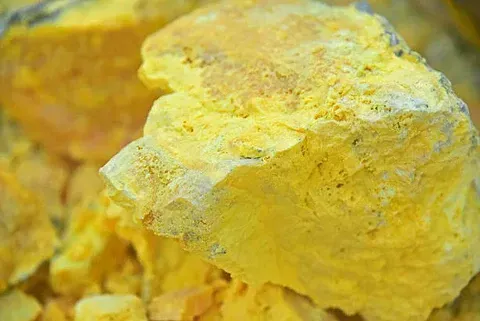
Understanding Sulfur in Water Sulfur is common in well water. It gives water a rotten egg smell. This happens when sulfur bacteria or hydrogen sulfide gas is present. The smell is unpleasant. It can also cause plumbing issues. Water with sulfur can stain sinks and fixtures. It may also make water taste bad. How Hydrogen Peroxide Works Hydrogen peroxide (H₂O₂) is a strong oxidizer. It reacts quickly with contaminants. When added to water, it breaks down into water and oxygen. This makes it safe for water treatment. It removes sulfur by oxidizing hydrogen sulfide gas. This reaction turns it into a solid that can be filtered out. Is Hydrogen Peroxide Safe? Yes, hydrogen peroxide is safe for water treatment. It does not leave harmful residues. Unlike chlorine, it does not create dangerous byproducts. It is used in the food and medical industries. It naturally breaks down, leaving no chemical traces. Compared to Other Sulfur Removal Methods Is It Safer Than Chlorine? Hydrogen peroxide is often considered safer than chlorine for water treatment. Chlorine can create harmful byproducts, such as trihalomethanes (THMs). These compounds have been linked to health risks. Hydrogen peroxide, on the other hand, breaks down into water and oxygen. It does not leave harmful residues. Unlike chlorine, it does not produce a strong chemical smell or taste. It is also less likely to irritate skin and eyes. For these reasons, many prefer hydrogen peroxide over chlorine for treating sulfur in water. There are different ways to remove sulfur from water. Here are a few: Chlorine Injection – Kills bacteria but leaves byproducts. Aeration – Uses oxygen but may not be effective for high sulfur levels. Iron Filters – Removes sulfur but requires regular maintenance. Activated Carbon – Helps with odor but may not remove all sulfur. Hydrogen peroxide works faster than most methods. It does not require long contact times. It is also effective in killing bacteria. Benefits of Using Hydrogen Peroxide No Harmful Residues – Breaks down into water and oxygen. Quick Reaction Time – Works faster than chlorine. Removes Bacteria – Helps keep water safe. No Unpleasant Taste – Does not add chemicals to water. Environmentally Friendly – Leaves no toxic byproducts. How to Use Hydrogen Peroxide for Sulfur Removal Hydrogen peroxide is injected into water using a metering pump. The amount needed depends on sulfur levels. After injection, the water passes through a filter. This removes oxidized sulfur particles. A professional should test the water before treatment. This ensures the right dosage is used. Does Hydrogen Peroxide Affect Plumbing? No, hydrogen peroxide is safe for pipes. It does not cause corrosion like chlorine. It also helps prevent bacteria buildup. This keeps plumbing systems clean. Is It Safe for Drinking Water? Yes, when used correctly, it is safe. It is commonly used in food production. The key is proper dosing. Too much can leave a slight taste. A filtration system helps remove excess. How Often Should the System Be Maintained? Regular maintenance is important. Filters should be cleaned or replaced as needed. The injection system should be checked monthly. Water tests should be done to ensure proper treatment. Hydrogen peroxide is a safe and effective way to treat sulfur in water. It works quickly and leaves no harmful residue. It is better than chlorine in many cases. It also helps keep plumbing free from bacteria. For best results, work with a professional. They can ensure the right system is in place. Safe water is important for health and the home. Hydrogen peroxide makes it possible.
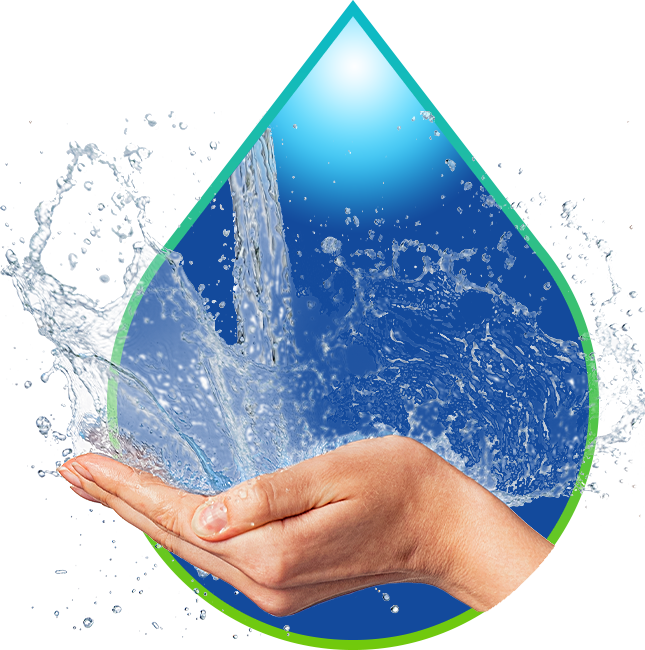
Water is essential. Every drop that flows through our homes and businesses impacts our health, appliances, and environment. Yet, many overlook the hidden costs of untreated water. Investing in a filtration system might seem expensive upfront. However, it can save money and resources over time. Let’s break it down. Health Risks of Untreated Water Untreated water carries impurities. These can include bacteria, minerals, viruses, and harmful chemicals. Drinking contaminated water can cause illnesses. Gastrointestinal problems, infections, and chronic conditions can result. The medical bills for these issues add up fast. In severe cases, hospitalizations may be required. This leads to higher costs for families and businesses. Filtration systems remove these contaminants. Clean water means fewer doctor visits and lower costs for medications and treatments. The investment in health alone makes filtration worthwhile. Damage to Plumbing Systems Hard water is a common problem. It contains high levels of calcium and magnesium. Over time, these minerals build up in pipes. This creates blockages and reduces water flow. Corrosion is another issue. Untreated water often has high acidity or chemicals that eat away at plumbing materials. Fixing plumbing problems can be costly. Pipe replacements and repairs are expensive. Investing in a water softener or filtration system prevents these issues. It extends the lifespan of your plumbing system. This saves money on maintenance and repairs. Impact on Household Appliances Appliances like dishwashers, washing machines, and water heaters rely on clean water. Hard water and sediment can damage these devices. Mineral buildup reduces efficiency. Over time, appliances may break down completely. Replacing a water heater or dishwasher is not cheap. Even repairs can cost hundreds of dollars. A filtration system ensures clean, softened water flows through your appliances. This improves performance and extends their lifespan. The savings from fewer repairs and replacements can be significant. Energy Efficiency and Utility Costs Hard water requires more energy. For example, water heaters struggle to heat water with mineral buildup. This means higher energy bills. Dishwashers and washing machines also use more detergent and power when water quality is poor. Filtered water improves energy efficiency. Appliances work better and use less power. Over time, the savings on utility bills add up. A filtration system pays for itself through these reduced costs. Environmental Impact Poor water quality also affects the environment. When we use untreated water, we rely on more detergents and cleaning products. These chemicals often end up in rivers and lakes. Hard water also leads to higher energy consumption. This increases carbon emissions. A filtration system reduces the need for detergents. It also lowers energy usage. This makes it an environmentally friendly choice. By investing in clean water, you contribute to a healthier planet. You also save money on cleaning supplies and energy costs. Bottled Water Expenses Many people turn to bottled water for drinking. It seems like a quick fix. However, bottled water is expensive. A family can spend hundreds or even thousands of dollars a year on it. Businesses spend even more providing bottled water for employees and clients. Filtered water eliminates this expense. You get clean, safe water directly from your tap. The cost of a filtration system is far less than the ongoing expense of bottled water. Plus, it reduces plastic waste, which benefits the environment. (We won't even get into the microplastics!) Property Value and Marketability Homes with water filtration systems are more attractive to buyers. Clean water is a selling point. It signals that the property is well-maintained. For businesses, clean water enhances their reputation. Restaurants, for example, need clean water for cooking and beverages. Customers notice the difference. Installing a filtration system adds value to your property. It’s an investment that pays off when it’s time to sell. For businesses, it can lead to increased customer satisfaction and loyalty. The True Cost of Doing Nothing Ignoring water quality problems doesn’t make them go away. Instead, issues compound over time. Health problems worsen. Appliances break down more frequently. Plumbing systems require costly repairs. Energy bills rise. Bottled water costs continue to add up. These cumulative costs often exceed the price of a filtration system. By not addressing water quality, you pay more in the long run. The financial strain can be significant for families and businesses alike. Affordable Filtration Options Water filtration systems come in many forms. Some are small and affordable, like faucet filters. Others are whole-home systems designed for maximum efficiency. Regardless of your budget, there’s a solution for you. Advanced technologies make them more efficient than ever. They require minimal upkeep and last for years. The upfront cost is quickly offset by savings on medical bills, repairs, and utility costs. Choosing to invest in a filtration system is a smart move. It protects your health, saves money, and benefits the environment. The cost of untreated water is simply too high. Whether for your home or business, clean water is worth it. Take the first step today. Assess your water quality. Explore filtration options. Invest in a solution that fits your needs. Your wallet, health, and appliances will thank you.
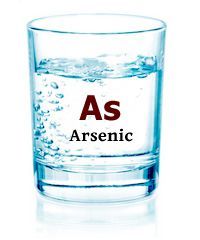
Arsenic is a toxic chemical element found naturally in the Earth’s crust. While it is present in trace amounts in soil and water, high concentrations are harmful. In Florida, arsenic contamination in municipal water is a growing concern. This issue affects public health and underscores the importance of water filtration systems. How Does Arsenic Enter Florida’s Water Supply? Arsenic enters the water supply in several ways. Natural deposits in Florida’s soil release arsenic into our groundwater. Activities like mining and agriculture can also contribute. Some pesticides that were used in the past, contained arsenic and left residues in the soil. Rainwater and irrigation can push these residues into our water table. Municipal water treatment systems (city water) are designed to remove many contaminants. However, they may not always filter out all arsenic. This is why many Florida residents turn to home water filtration systems to attend to this issue. Companies like Fix Any Water offer advanced solutions to tackle this problem. Health Risks of Arsenic in Water Exposure to arsenic has serious health implications. Long-term consumption can lead to: Cancer (especially skin, bladder, and lung cancer) Heart disease Diabetes Neurological problems Weakened immune systems Even low levels of arsenic can be harmful over time. Children are particularly vulnerable due to their smaller body size and developing organs. This makes clean, arsenic-free water essential for Florida families. How Do Municipal Systems Address Arsenic? Florida’s municipal water treatment plants follow federal standards. The Environmental Protection Agency (EPA) sets the limit for arsenic at 10 parts per billion (ppb). Water utilities must test and treat water to meet this limit. However, small traces of arsenic can remain in the water. For some people, even levels below the EPA limit can cause concern. Private water filtration systems offer an additional layer of safety. The Role of Water Filtration Home and business water filters are key to reducing arsenic exposure. Advanced filtration systems can target and remove harmful elements. Popular filtration methods include: Reverse Osmosis (RO): Forces water through a semi-permeable membrane to remove contaminants. Activated Carbon Filters: Absorb impurities like arsenic and chlorine. Ion Exchange Filters: Replace arsenic ions with harmless ions. Companies like Fix Any Water provide tailored solutions. Whether for residential or commercial use, these systems offer peace of mind. Why Florida Residents Need Water Filters Florida’s geography and history make arsenic contamination a local issue. The state’s porous limestone allows arsenic to seep into groundwater. Additionally, past agricultural practices have left lingering chemical residues. Municipal systems cannot solve every problem. Many Florida homeowners install water filters to take control of their water quality. A good filtration system protects your family and business adding value to your home and company. The Fix Any Water Advantage Fix Any Water specializes in comprehensive water treatment solutions. They understand the unique challenges Florida residents face. Their arsenic removal systems are designed to be effective and efficient. Key benefits of using Fix Any Water filtration systems include: Customizable Options: Tailored to meet your specific water quality needs. Long-Lasting Filters: Durable and low-maintenance solutions. Expert Installation: Ensures optimal performance. Continued Service: Ensuring continued protection With a focus on customer satisfaction, Fix Any Water ensures clean and safe water for every home and business. How to Test for Arsenic in Your Water Testing your water is the first step to addressing arsenic concerns. Home testing kits are available, but professional lab testing is more accurate. Companies like Fix Any Water can also perform detailed water analysis. If your water contains arsenic, a professional filtration system is the best solution. Fix Any Water’s experts will guide you in choosing the right system for your needs. The Cost of Not Filtering Your Water The long-term health risks of arsenic far outweigh the cost of a filtration system. Health complications from arsenic exposure can lead to expensive medical bills. Additionally, untreated water can damage household appliances. Minerals and toxins in unfiltered water contribute to wear and tear. Investing in water filtration is a smart financial decision. It protects your health, home, and wallet. Florida’s Commitment to Safe Water Florida officials are working to address water contamination. Regular testing and treatment programs aim to protect public health. However, arsenic contamination persists in some areas. Residents must stay informed and proactive. Monitoring water quality and investing in water filters are vital steps. Steps You Can Take To protect your family from arsenic in municipal water, follow these steps: Test Your Water: Determine if arsenic or other contaminants are present. Research Filtration Options: Understand which systems suit your needs. Choose a Trusted Provider: Work with experts like Fix Any Water. Maintain Your System: Replace filters regularly to ensure efficiency. Clean water is essential for good health. With the right tools and knowledge, you can protect your home and loved ones. Arsenic contamination in Florida’s municipal water is a serious issue. While treatment plants work to meet EPA standards, small amounts of arsenic can remain. Home water filtration systems offer an effective solution. Fix Any Water is here to help. Their expert team provides high-quality water filters tailored to Florida’s unique needs. By investing in a reliable system, you ensure the safety of your family and improve the quality of your water. Don’t take chances with your health. Test your water today and consider installing a filtration system. Clean water is not just a necessity—it’s a right. Fix Any Water is committed to helping Florida residents achieve it.
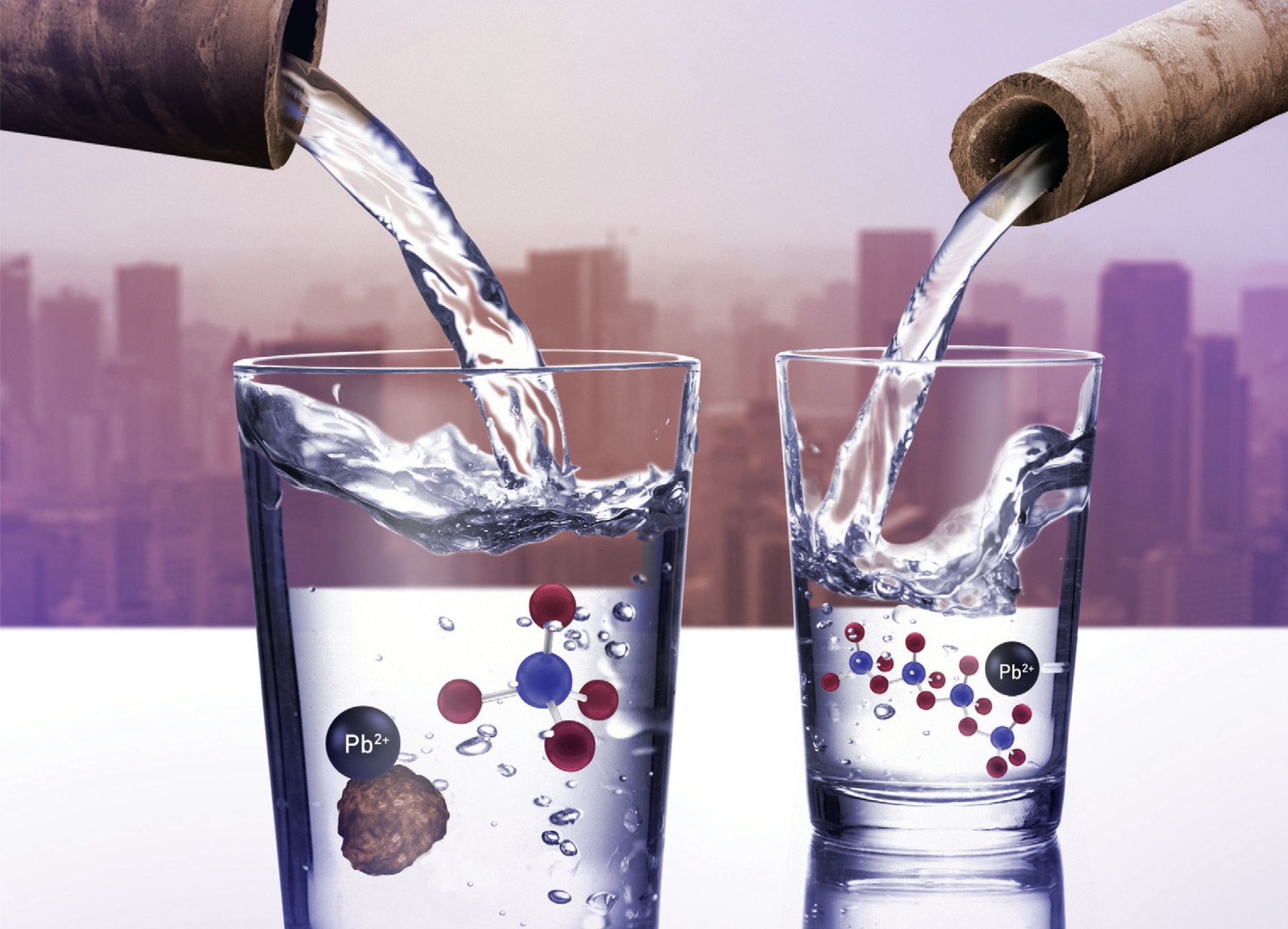
Lead contamination in drinking water has been a growing concern. It poses significant health risks, especially in older homes and communities. Florida cities are no exception. Despite modern municipal water systems, lead can still leach into the water at your home. Understanding this issue is vital for public safety. What Causes Lead in Drinking Water? Lead enters drinking water mainly through pipe corrosion. Older pipes and plumbing fixtures are common sources. When water sits in lead pipes, it absorbs the metal. This is especially true for homes built before 1986. Lead-based solder and brass fixtures also contribute to this issue. Florida’s Unique Challenges Florida has its own water challenges. Aging infrastructure is a major factor. Florida is home to some of the oldest cities in the country. Some cities still use old lead service lines. The state’s warm climate can also accelerate corrosion. Additionally, Florida's water often contains high mineral content, which also affects pipe conditions. Health Risks of Lead in Water Lead is toxic to humans. Even small amounts can cause harm. Children and pregnant women are most vulnerable. Lead affects brain development, causing learning and behavior issues. In adults, it can damage the kidneys and nervous system. Long-term exposure increases health risks. Testing for Lead in Florida Homes Testing is the only way to detect lead. Florida municipal water providers must follow the EPA’s Lead and Copper Rule. Utilities test water regularly for compliance. But this is at the source, not at your home. Water travels then through pipes to your home. Homeowners should test their water. DIY test kits are widely available. For more accurate results, hire a water treatment professional. How Does Florida Address Lead Contamination? State and local governments monitor water quality. They enforce federal guidelines to reduce lead risks. Many utilities replace old lead pipes during upgrades. Public education campaigns also inform residents about lead prevention. Steps to Reduce Lead Exposure at Home You can take steps to reduce lead in your water: Flush the Tap: Run water for 30 seconds before use. Use Cold Water: Hot water increases lead leaching. Install Filters: Use NSF-certified filters designed for lead removal. Replace Plumbing: Upgrade old pipes and fixtures. Florida Cities with Lead Concerns Some Florida cities face higher lead risks. Older neighborhoods often have lead service lines. In 2022, testing in a few cities showed elevated lead levels. Public pressure has led to improved testing and infrastructure upgrades. Water Filtration Solutions for Lead Installing a filtration system is an effective solution. Options include: Point-of-Use Filters: Attach to faucets or under sinks. Whole-Home Systems: Treat all water entering the home. Reverse Osmosis Systems: Remove nearly all contaminants. Why Choose Professional Help? Professional water treatment companies like ours offer customized solutions. They assess your home’s water and recommend the best systems. Regular maintenance ensures continued protection. Safeway Water Technologies: Your Partner in Clean Water At Safeway Water Technologies, we specialize in lead removal. Our systems are designed for Florida’s unique water conditions. We offer testing, installation, and maintenance services. Protect your family with our expert solutions. Final Thoughts Lead in drinking water is a serious issue. Florida cities must address aging infrastructure and educate the public. Homeowners can take steps to protect themselves. Testing, filtration, and plumbing upgrades are key. Together, we can ensure safe, lead-free water for everyone. Contact Safeway Water Technologies today to learn more.
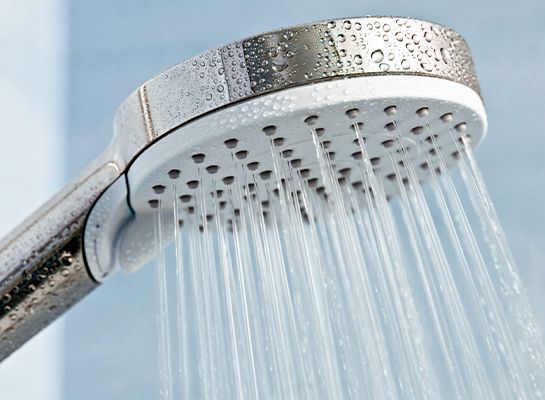
While most people start their day with a refreshing shower, few realize the potential risks lurking in the city water running through their homes. From common chemical disinfectants to more insidious byproducts, your daily shower could expose you to a range of contaminants that may impact your health over time. Here’s a closer look at five hidden dangers you might not have considered: 1. Arsenic: The Unseen Threat Arsenic is a naturally occurring element that can infiltrate water supplies through natural deposits or industrial pollution. In city water systems, low levels of arsenic might still be present despite regulations aimed at keeping them below dangerous thresholds. However, even minimal exposure through showering can be harmful, as: Absorption Risk: Although ingestion poses the greatest risk, small amounts of arsenic can still be absorbed through the skin. Long-Term Effects: Prolonged exposure has been linked to skin disorders, respiratory issues, and even an increased risk of certain types of cancer. Protective Measures: Installing a whole-house filtration system capable of removing heavy metals can be an effective way to reduce exposure. 2. Chlorine: A Double-Edged Sword Chlorine is widely used as a disinfectant in public water systems to kill harmful pathogens and bacteria. While effective, chlorine can have unintended consequences when inhaled or absorbed during a steamy shower: Respiratory Impact: Inhaling chlorine vapor can irritate the respiratory tract, potentially exacerbating conditions like asthma. Skin and Hair Dryness: Chlorine strips natural oils from the skin and hair, leading to dryness, itching, and irritation. Solutions: Shower filters that specifically target chlorine removal can help mitigate these effects, allowing you to enjoy a safer, more skin-friendly shower. 3. Chloroform: The Byproduct You Didn’t Expect When chlorine reacts with organic matter in water, it creates trihalomethanes (THMs), one of which is chloroform. Though most people associate chloroform with old medical practices, it’s still present in trace amounts in chlorinated water: Health Concerns: Chloroform is a suspected carcinogen. Prolonged exposure, even through inhalation during showers, has been associated with liver and kidney damage. Volatile Nature: The heat of a shower turns chloroform into vapor, making it easy to inhale and increasing the potential for exposure. Precautions: Look for filtration systems with activated carbon filters, which are highly effective at removing THMs from water. 4. Dichloroacetic Acid (DCA): The Undercover Villain DCA is one of the haloacetic acids (HAAs) formed as a byproduct of the disinfection process. Although regulated, HAAs can still find their way into your home’s water supply: Health Risks: Research has shown that DCA may disrupt cellular processes, impacting liver function and posing potential cancer risks. Skin Absorption: HAAs can be absorbed through the skin, so even if you're not drinking the water, you might still be at risk during a shower. How to Reduce Exposure: Choosing water filtration systems that address HAAs, alongside standard disinfectant byproducts, can significantly lower the risks. 5. MX (Mutagen X): The Lesser-Known Carcinogen Mutagen X (MX) is an emerging concern and less commonly discussed disinfection byproduct. Although more research is needed to fully understand its health implications, initial studies suggest that: Mutagenic Properties: MX is highly mutagenic, meaning it can alter DNA and potentially lead to various types of cancer. Cumulative Danger: The exposure may not cause immediate harm but could have long-term implications if absorbed regularly over years. Taking Preventative Steps: Advanced filtration systems and reverse osmosis units are among the most effective solutions for removing hard-to-detect contaminants like MX. The Importance of Effective Water Filtration Your morning shower doesn’t need to be a hidden hazard. By investing in comprehensive water treatment solutions, you can enjoy peace of mind knowing that you and your family are protected from potentially harmful contaminants. Options such as carbon block filters, multi-stage filtration units, and whole-home systems designed to tackle both chemical disinfectants and their byproducts can significantly improve the safety of your water. While city water treatment facilities work hard to ensure that water is safe for general use, they can’t eliminate every potential risk. Awareness is your first step toward safeguarding your health. With the right knowledge and tools, your shower can be transformed from a potentially risky routine to a truly refreshing and safe experience.

